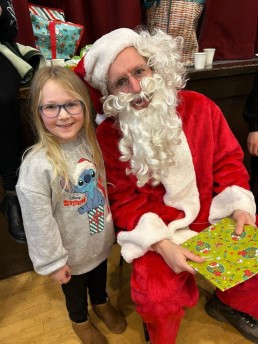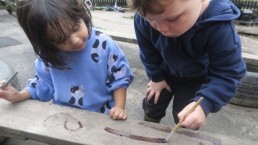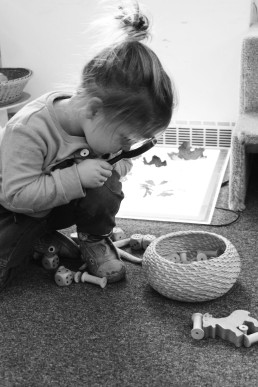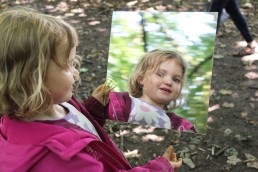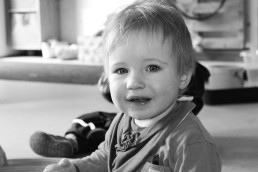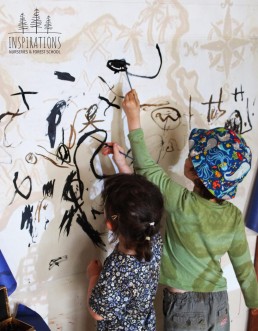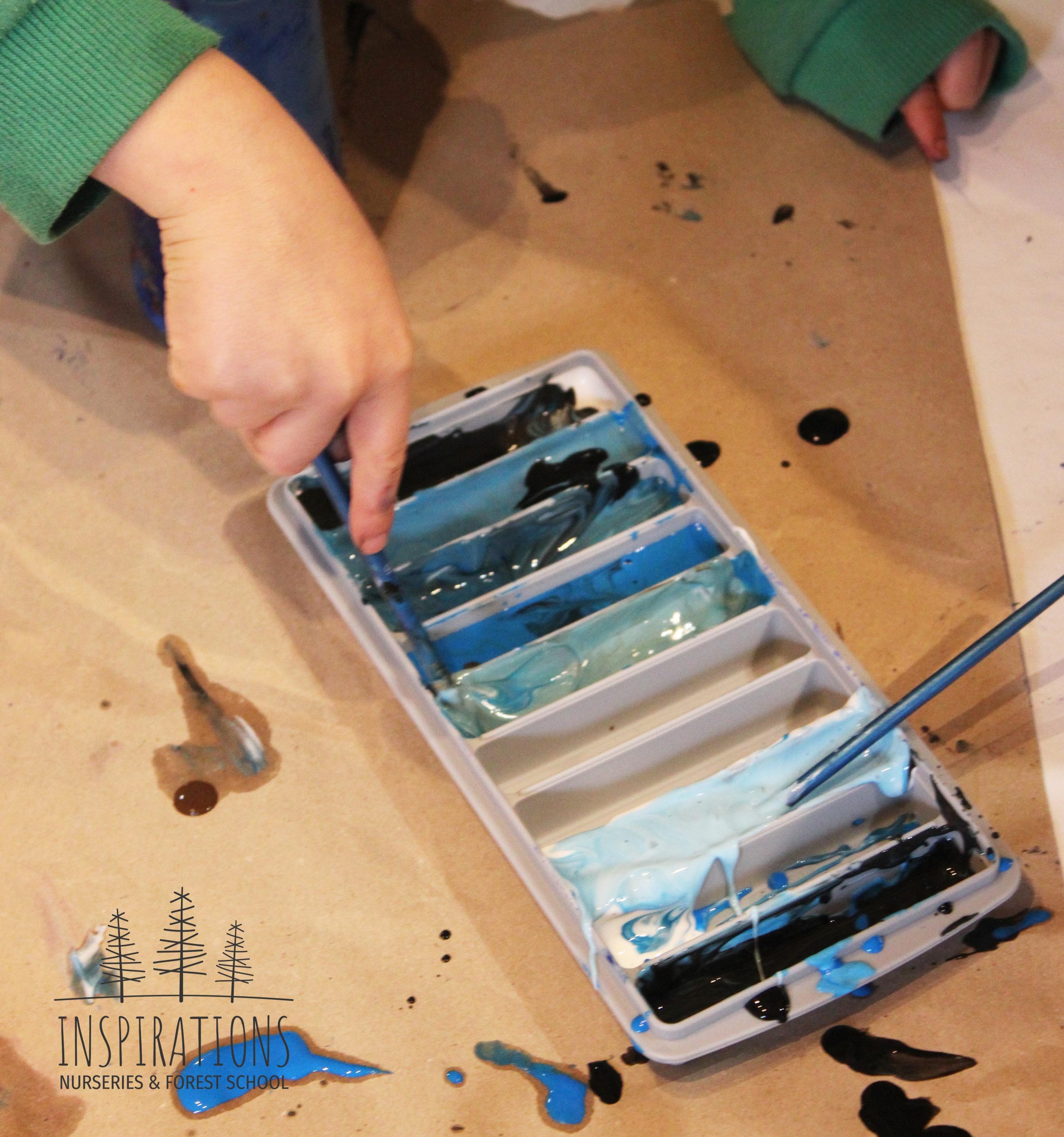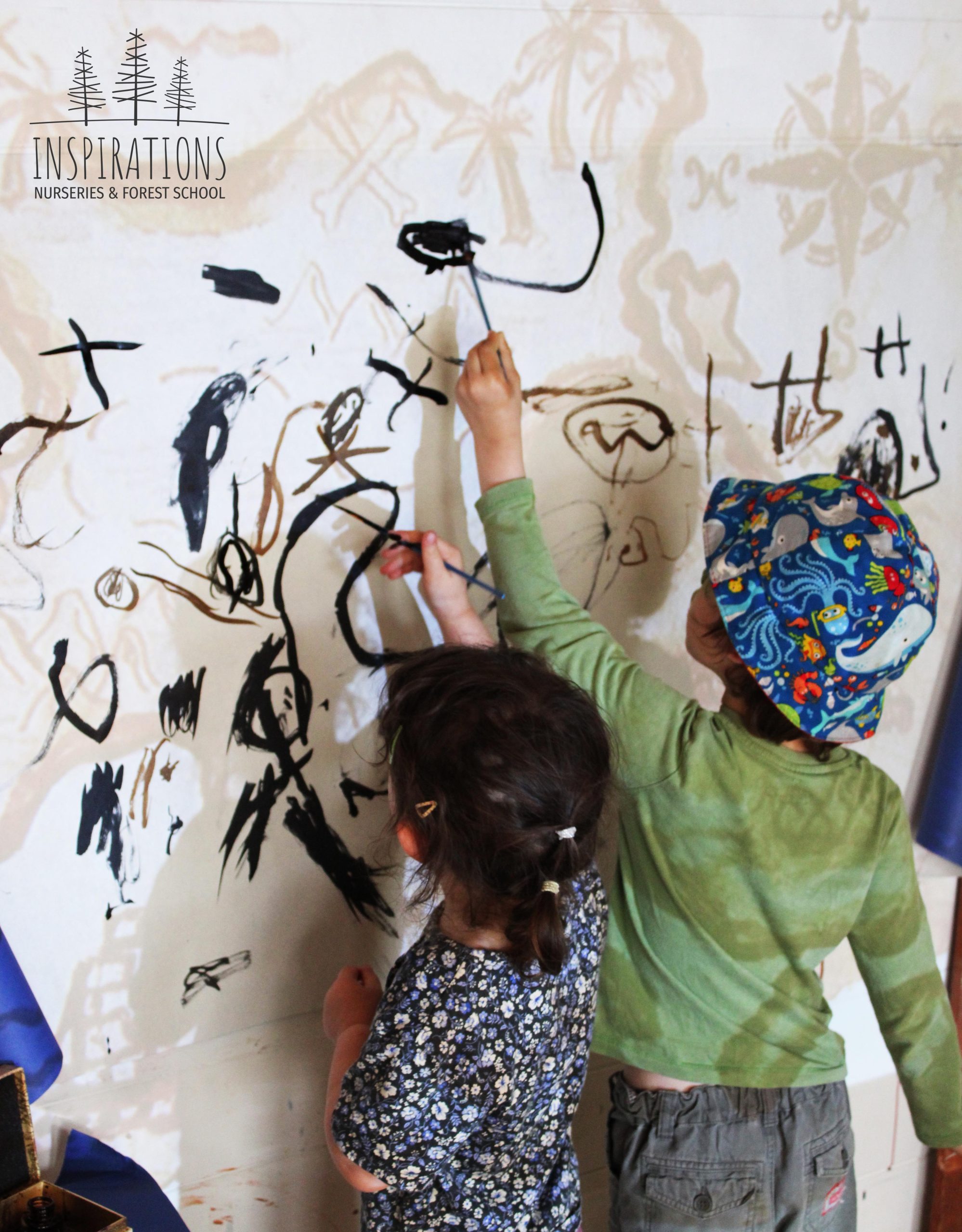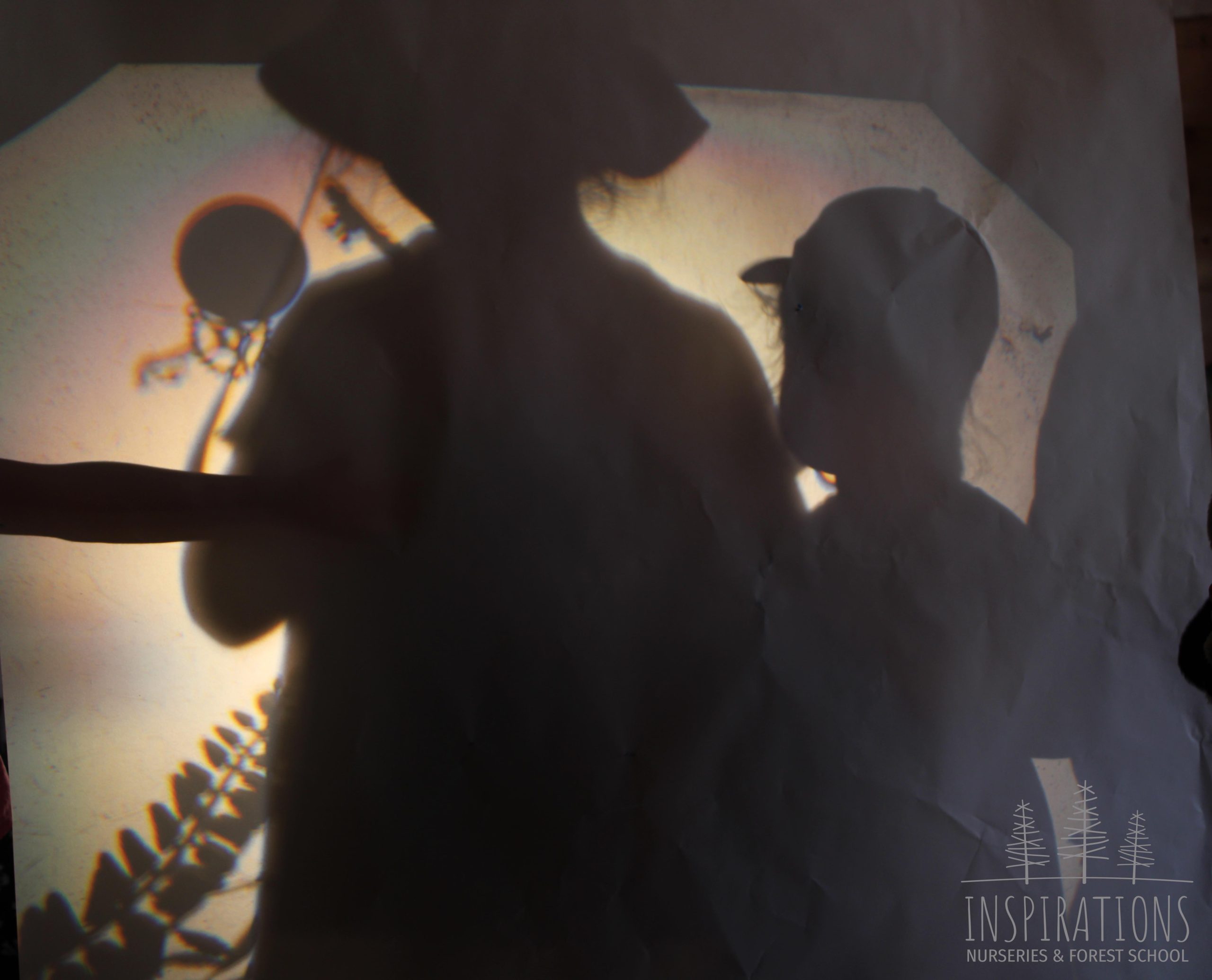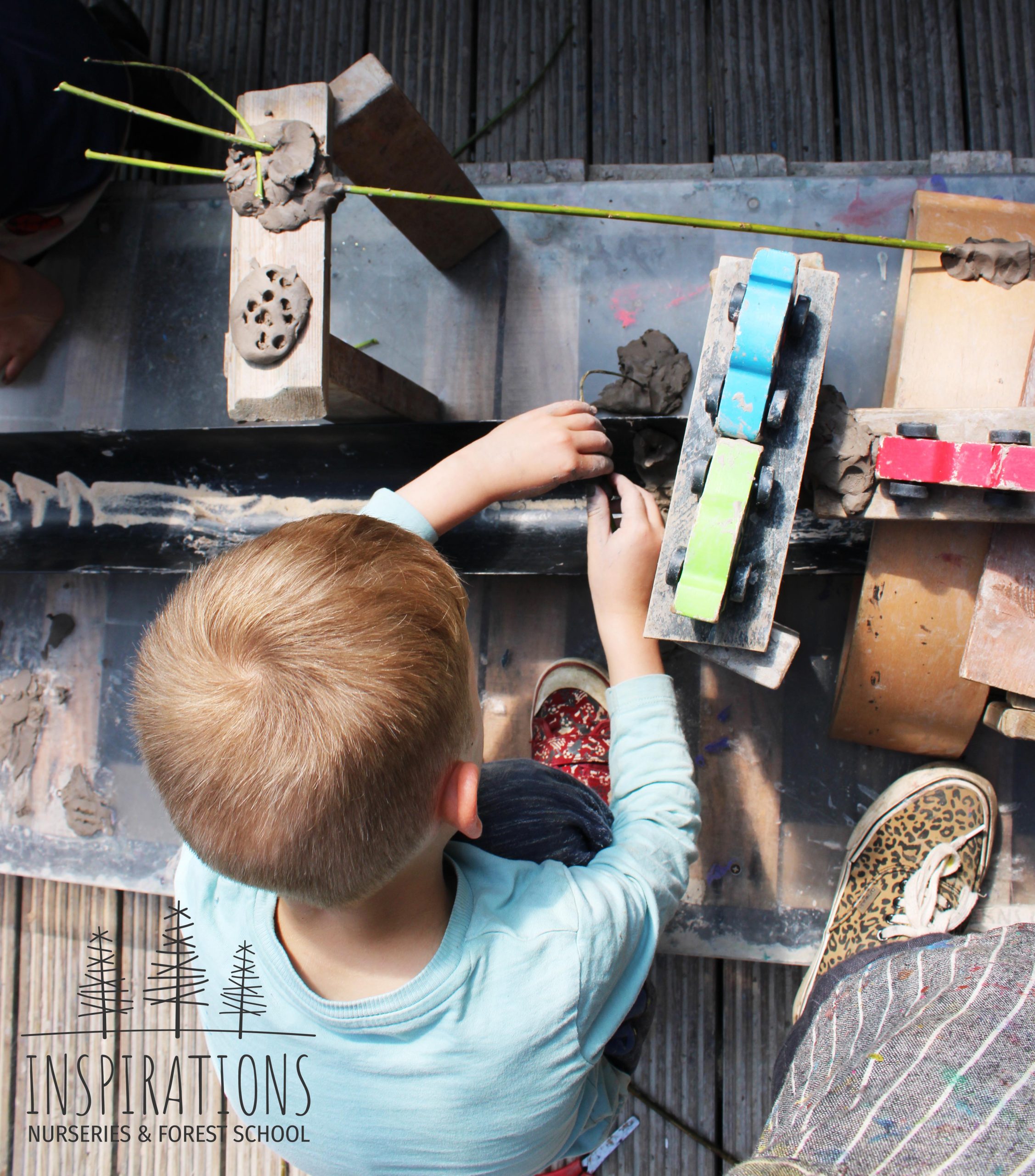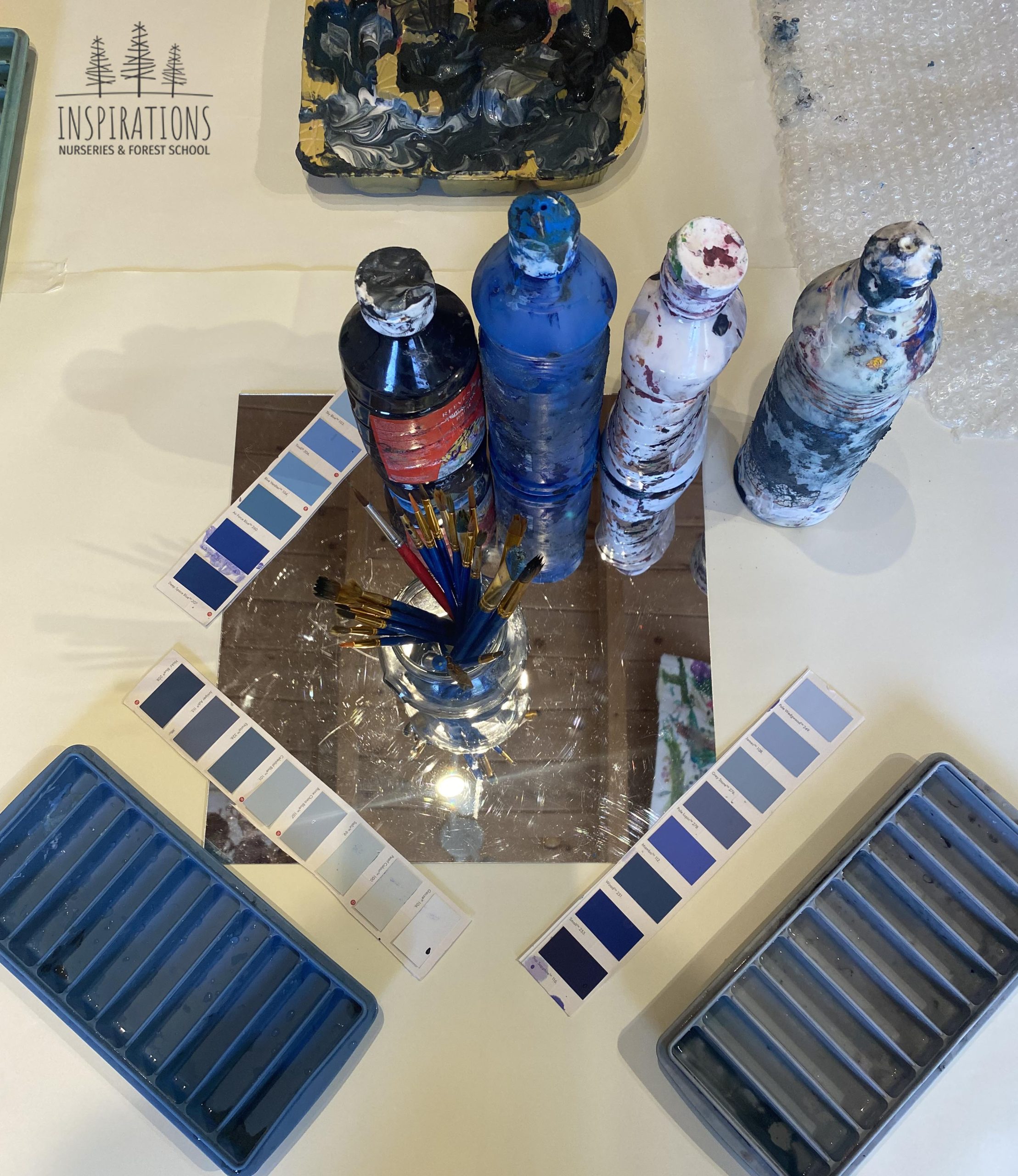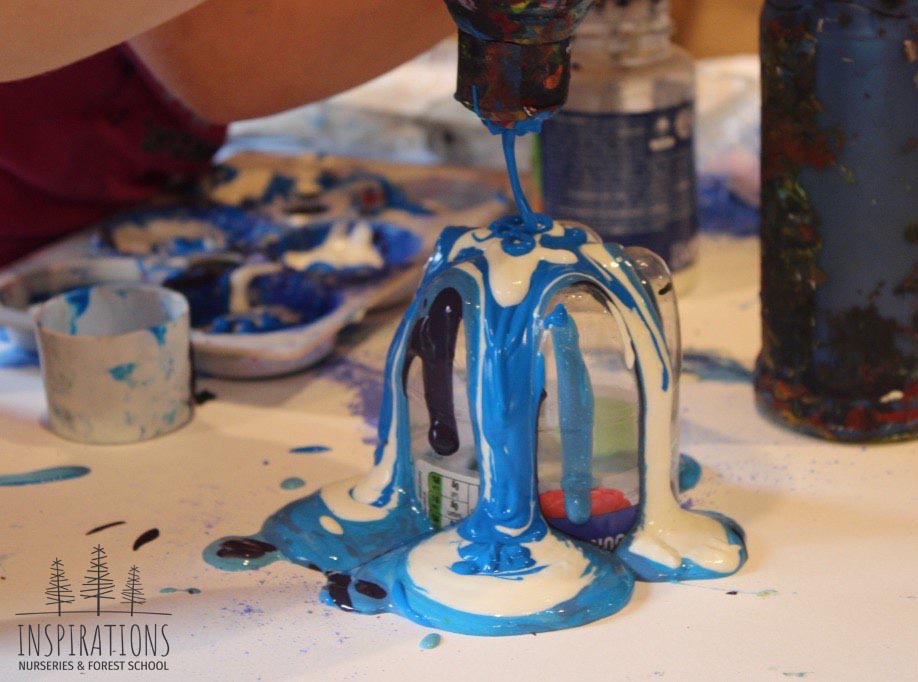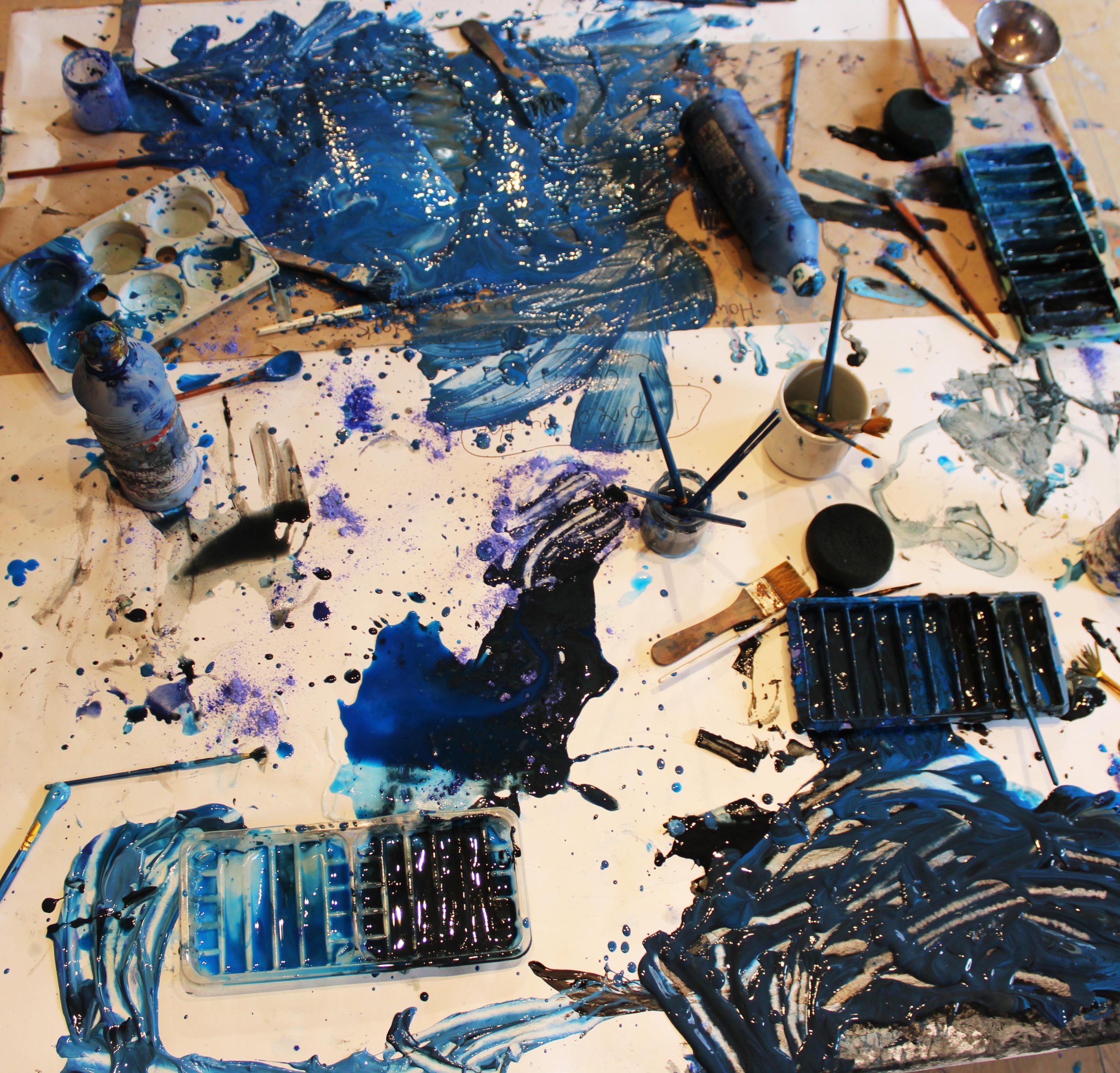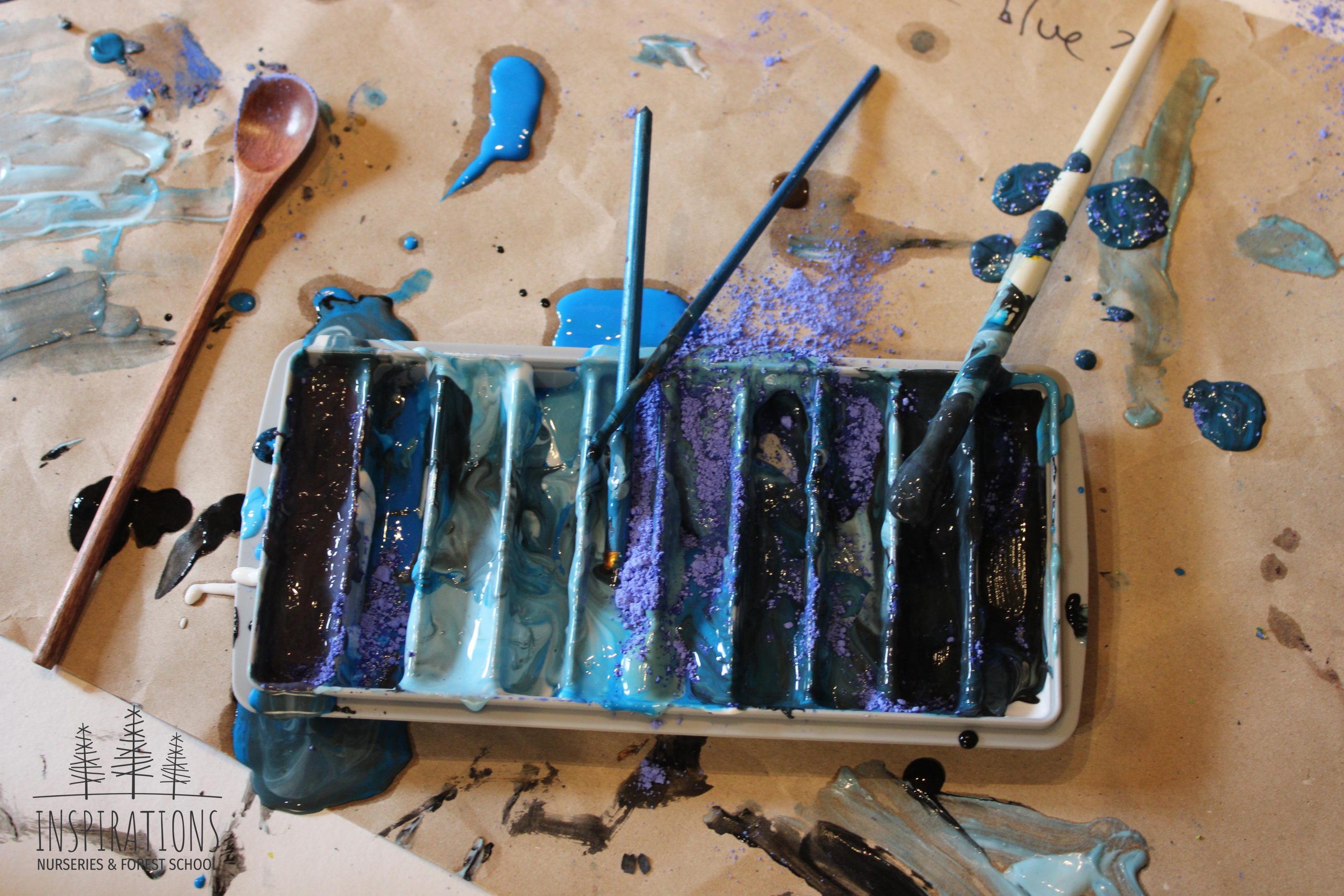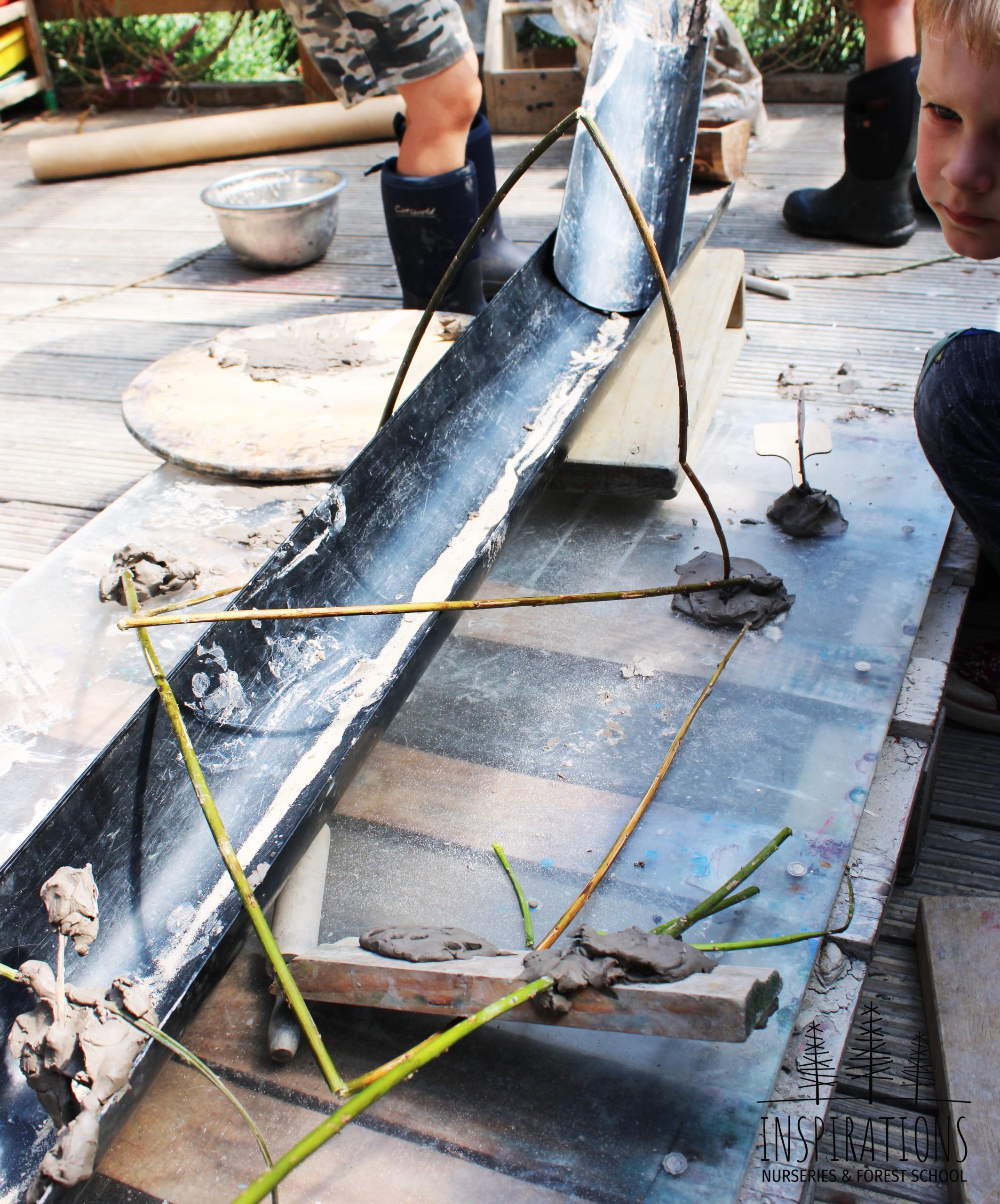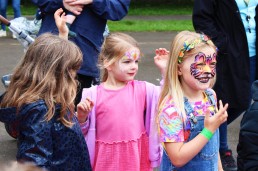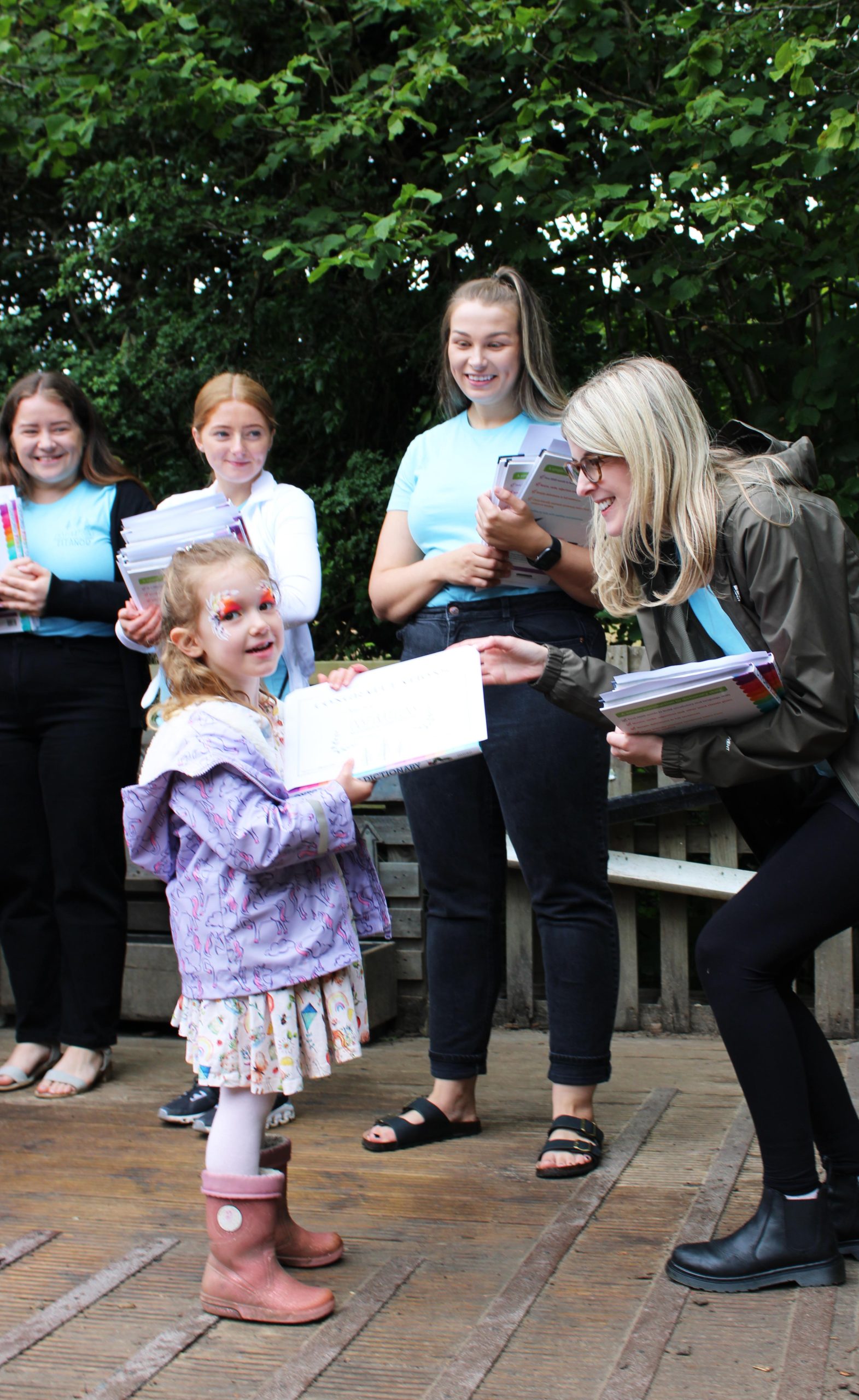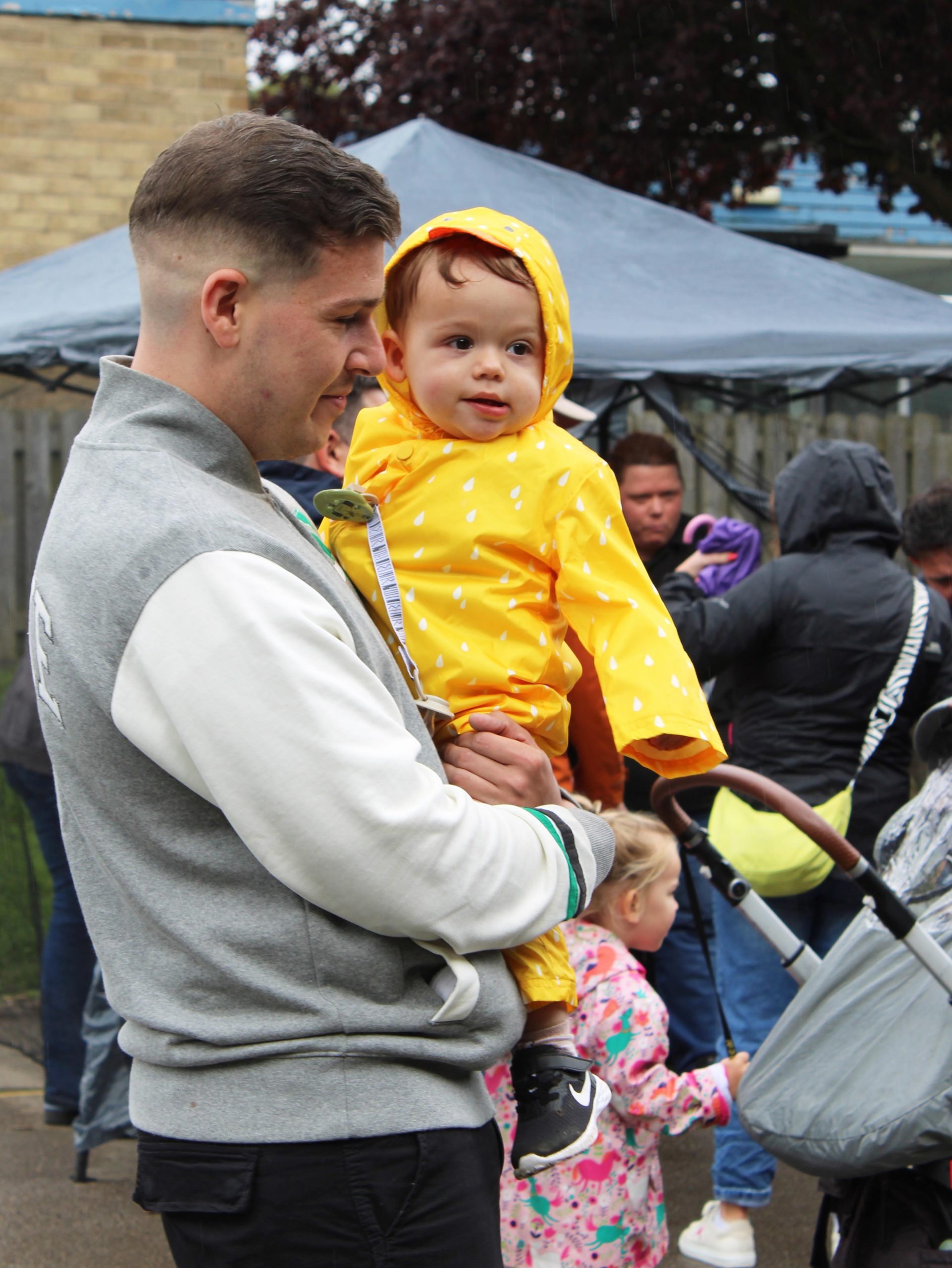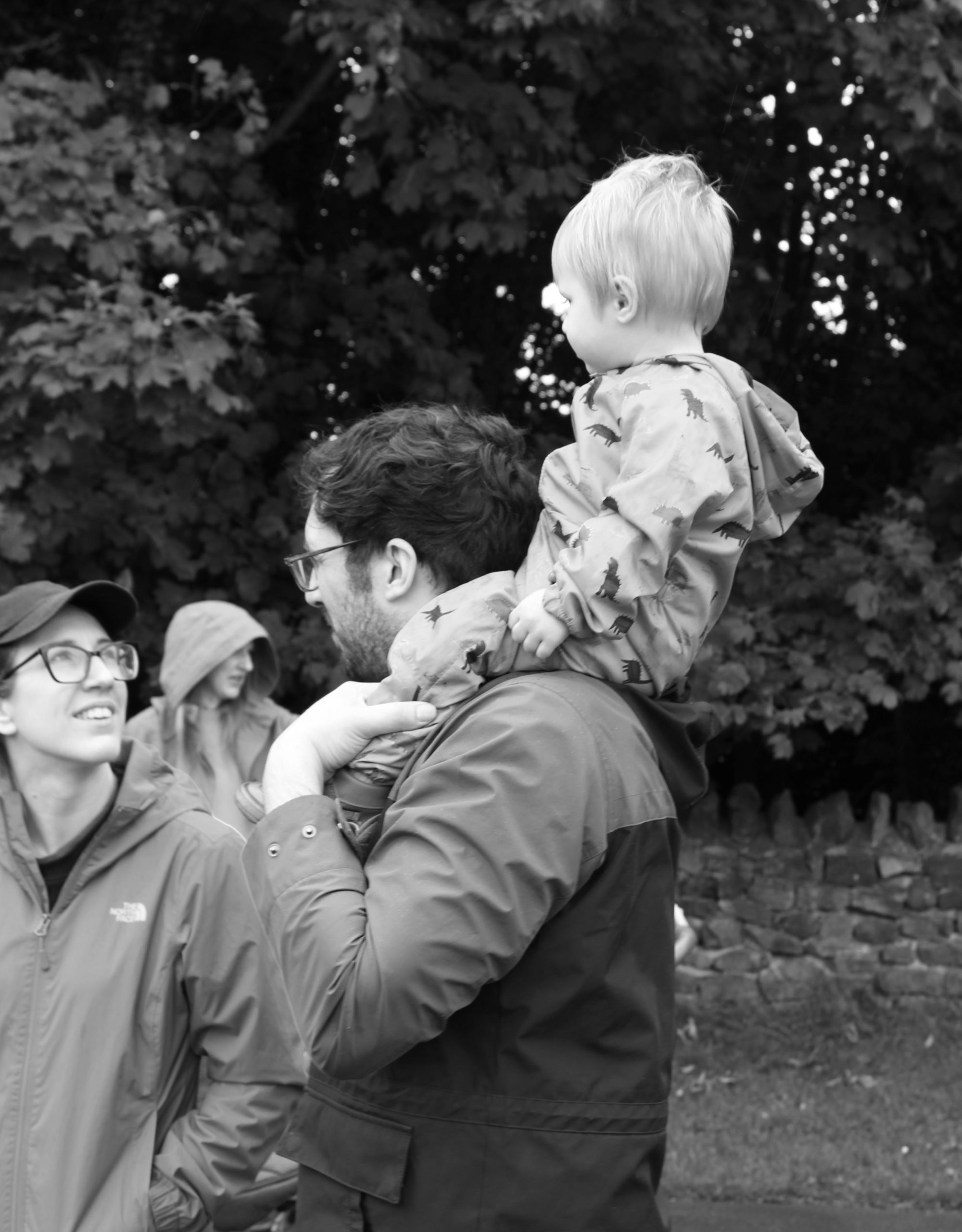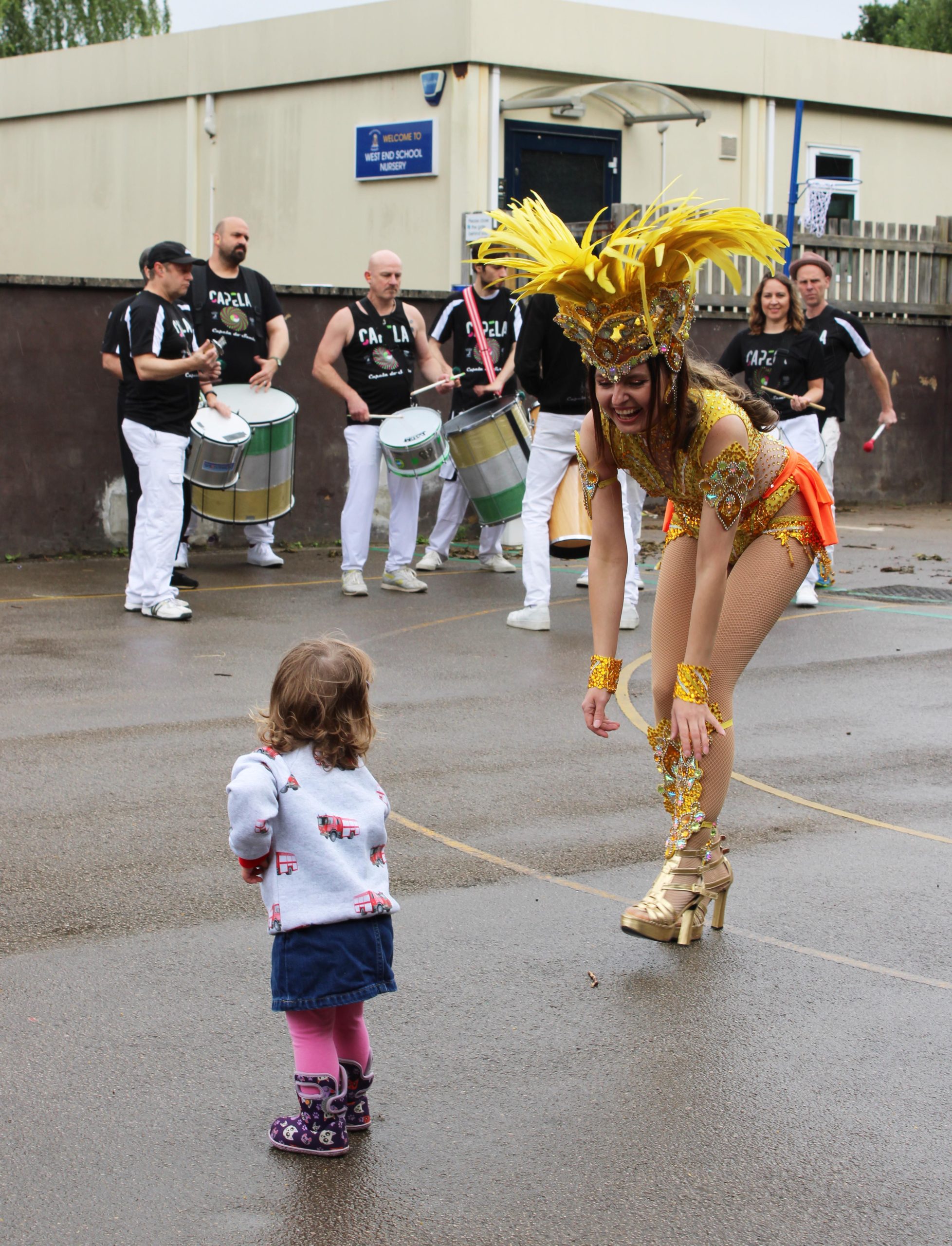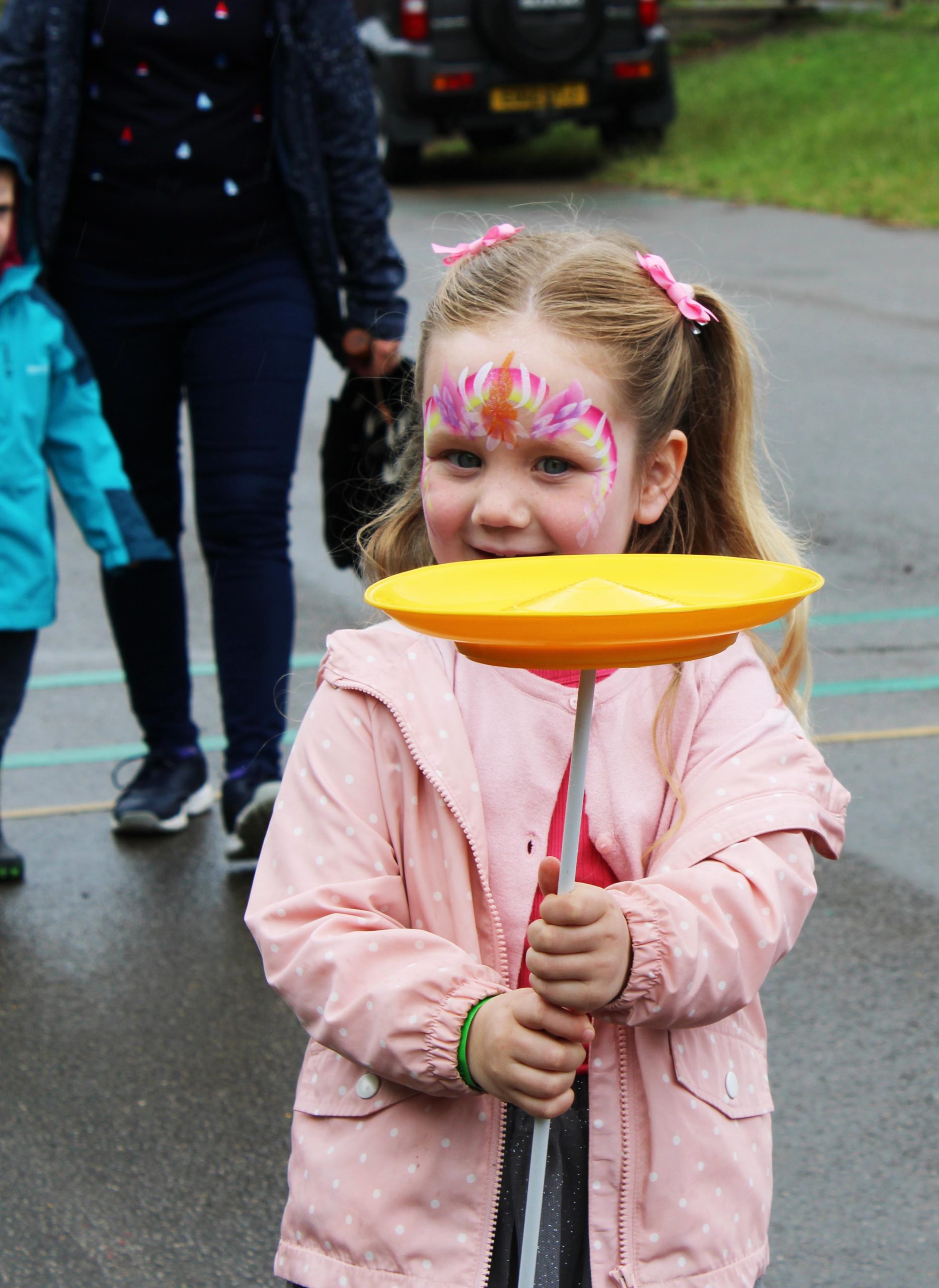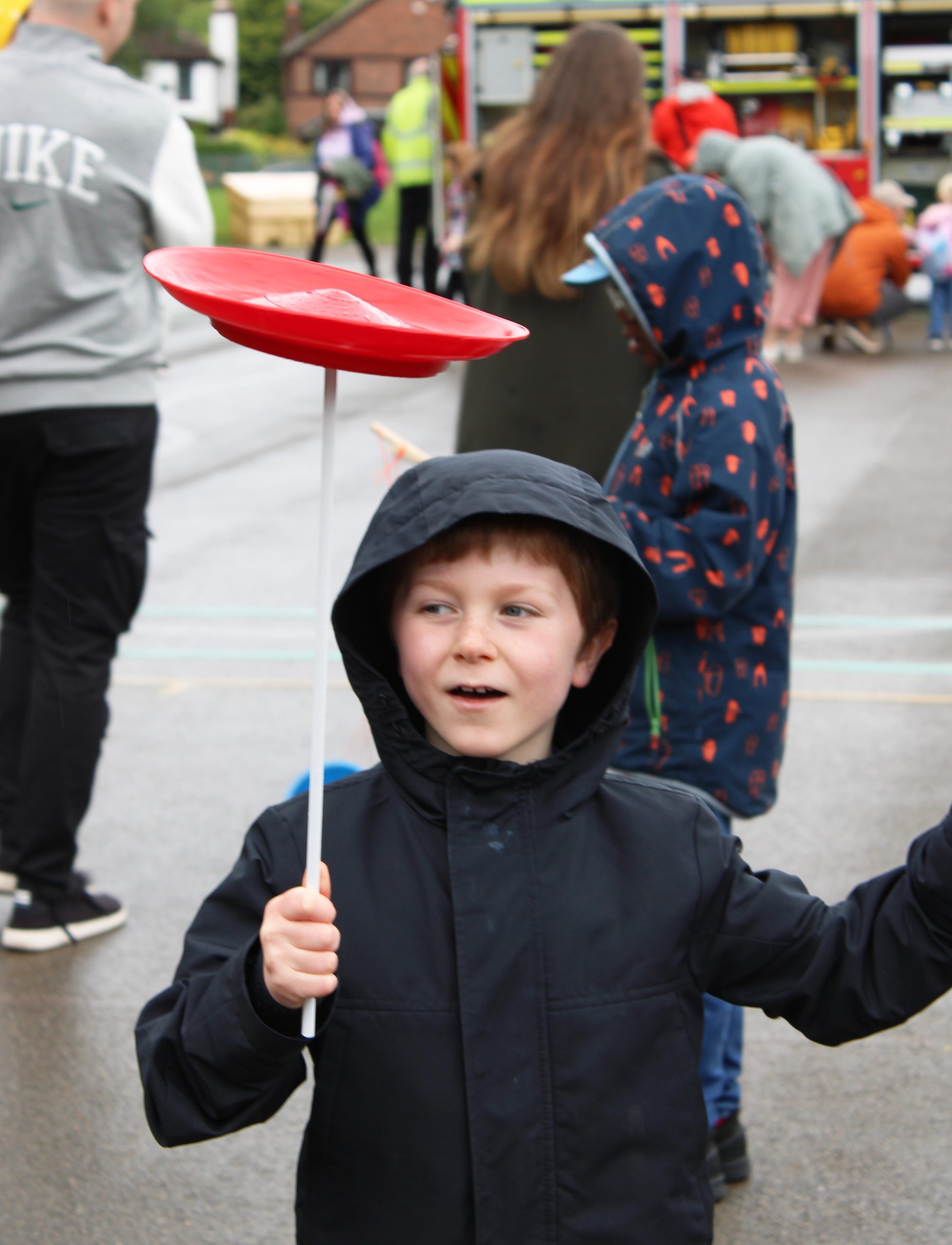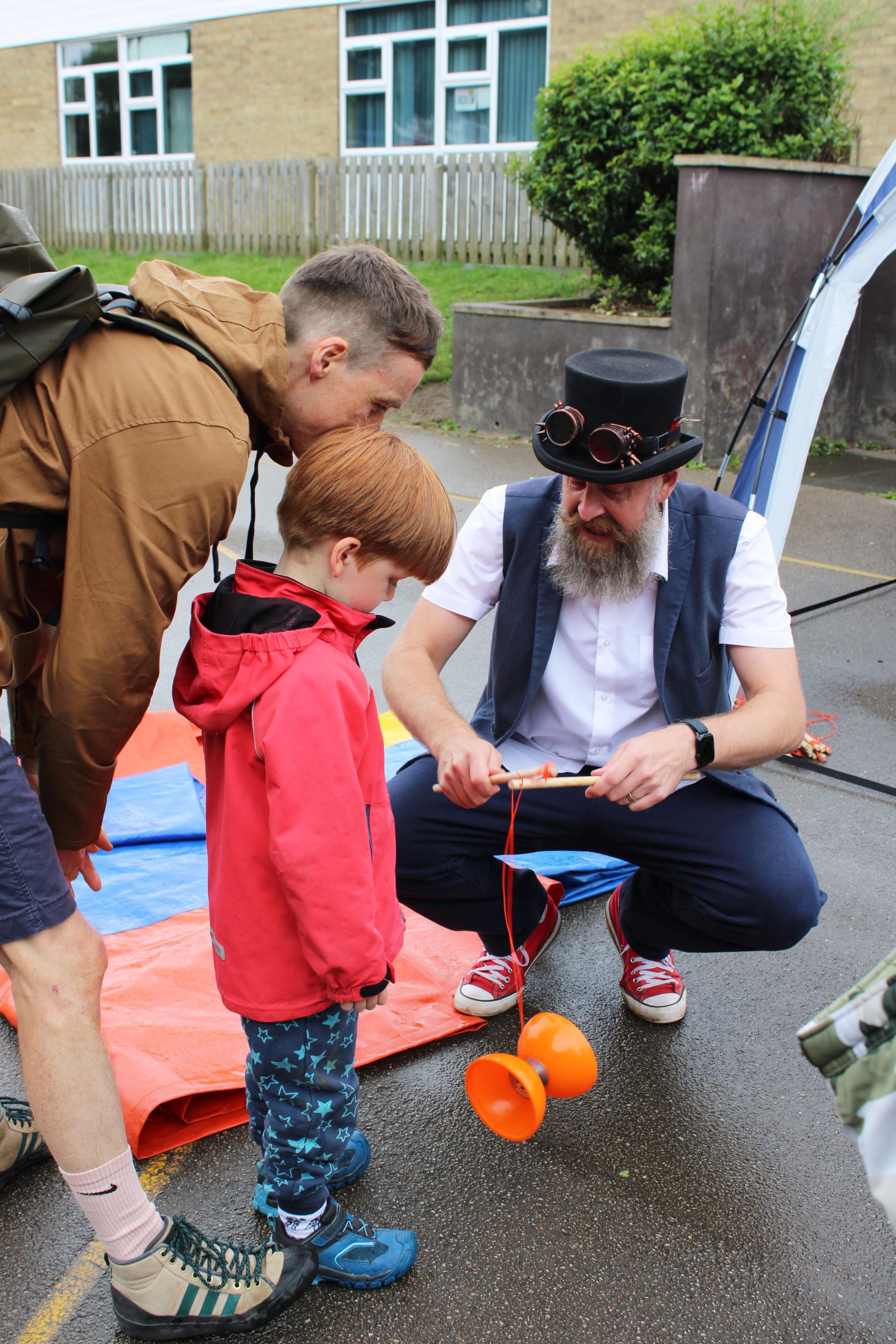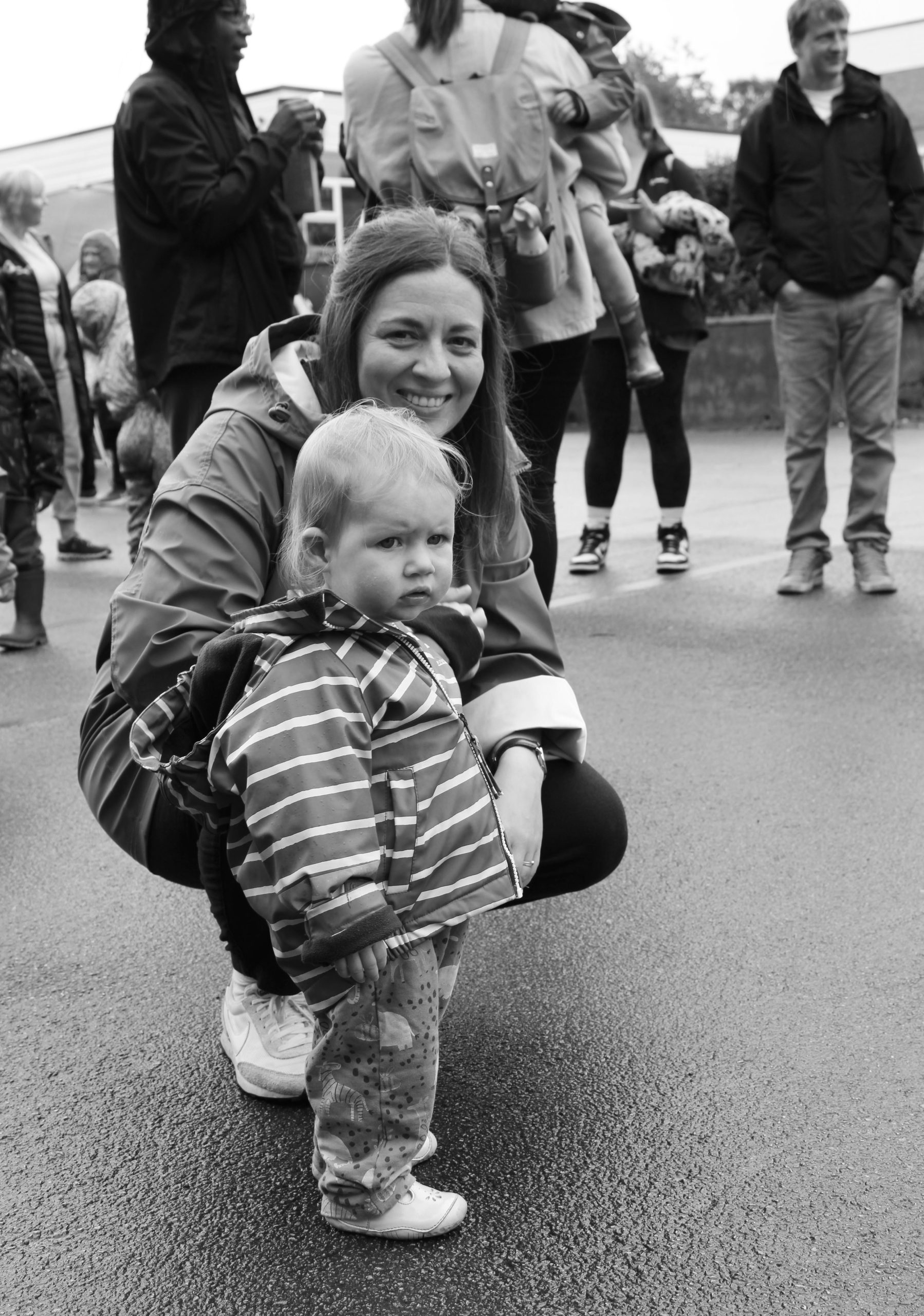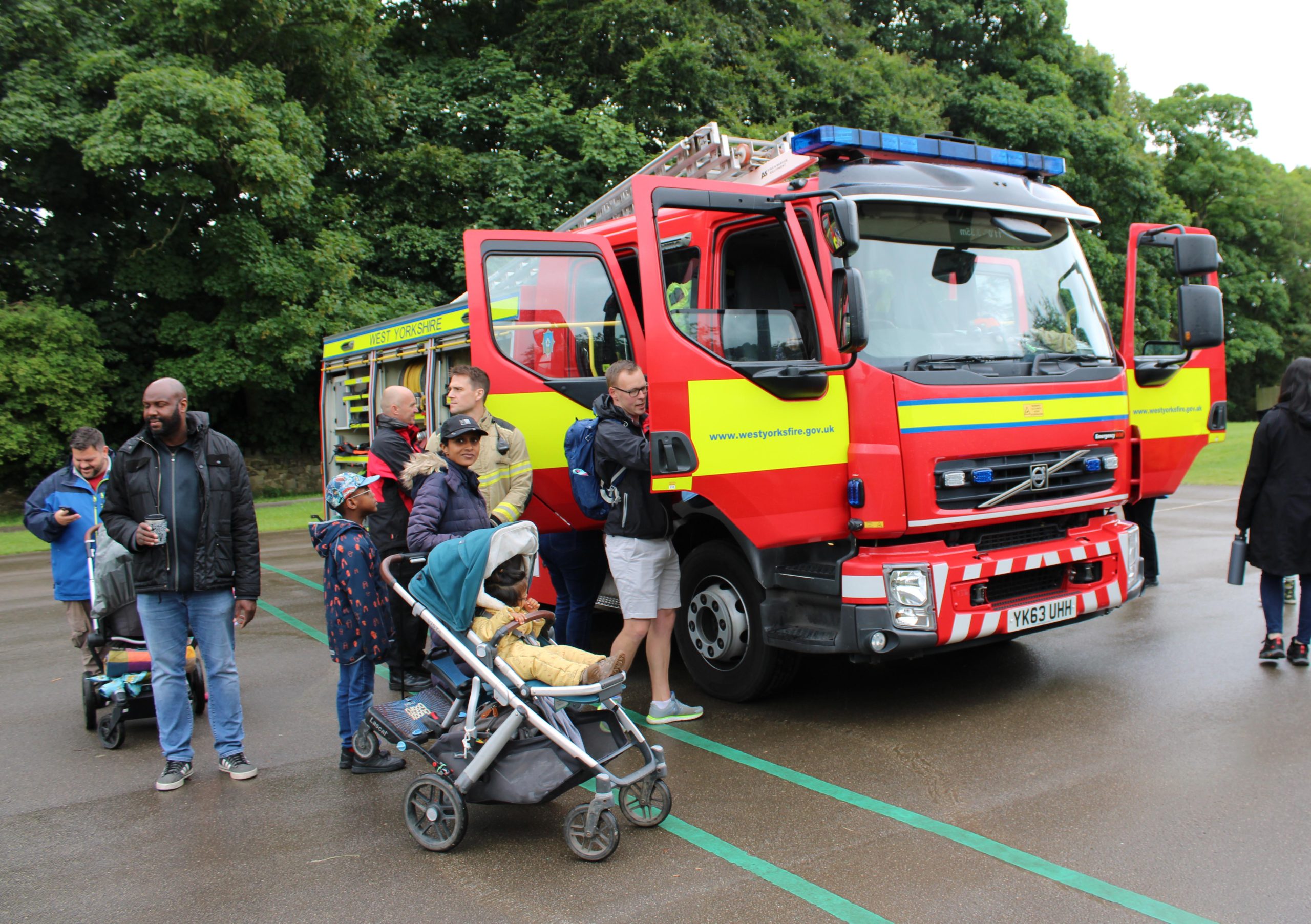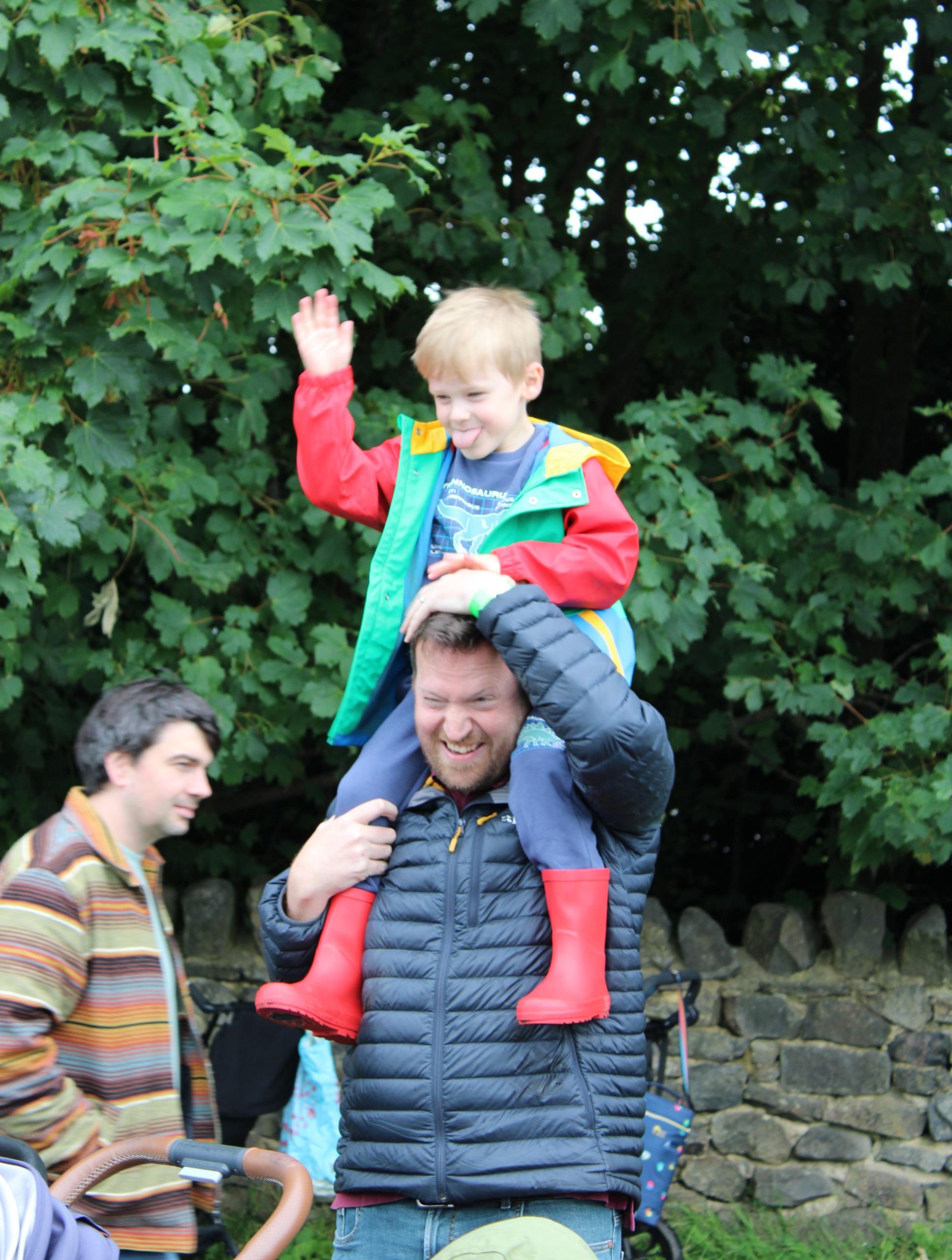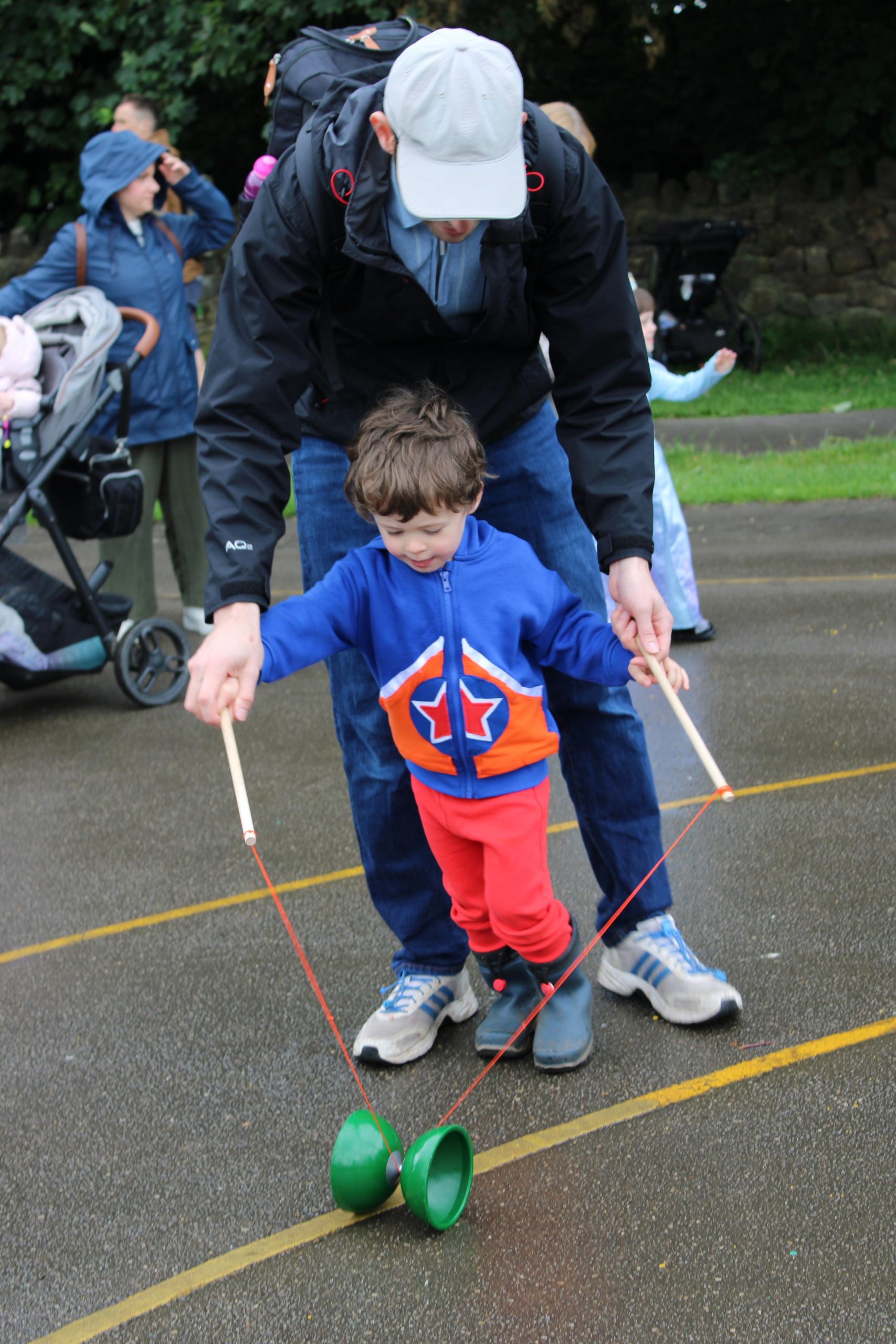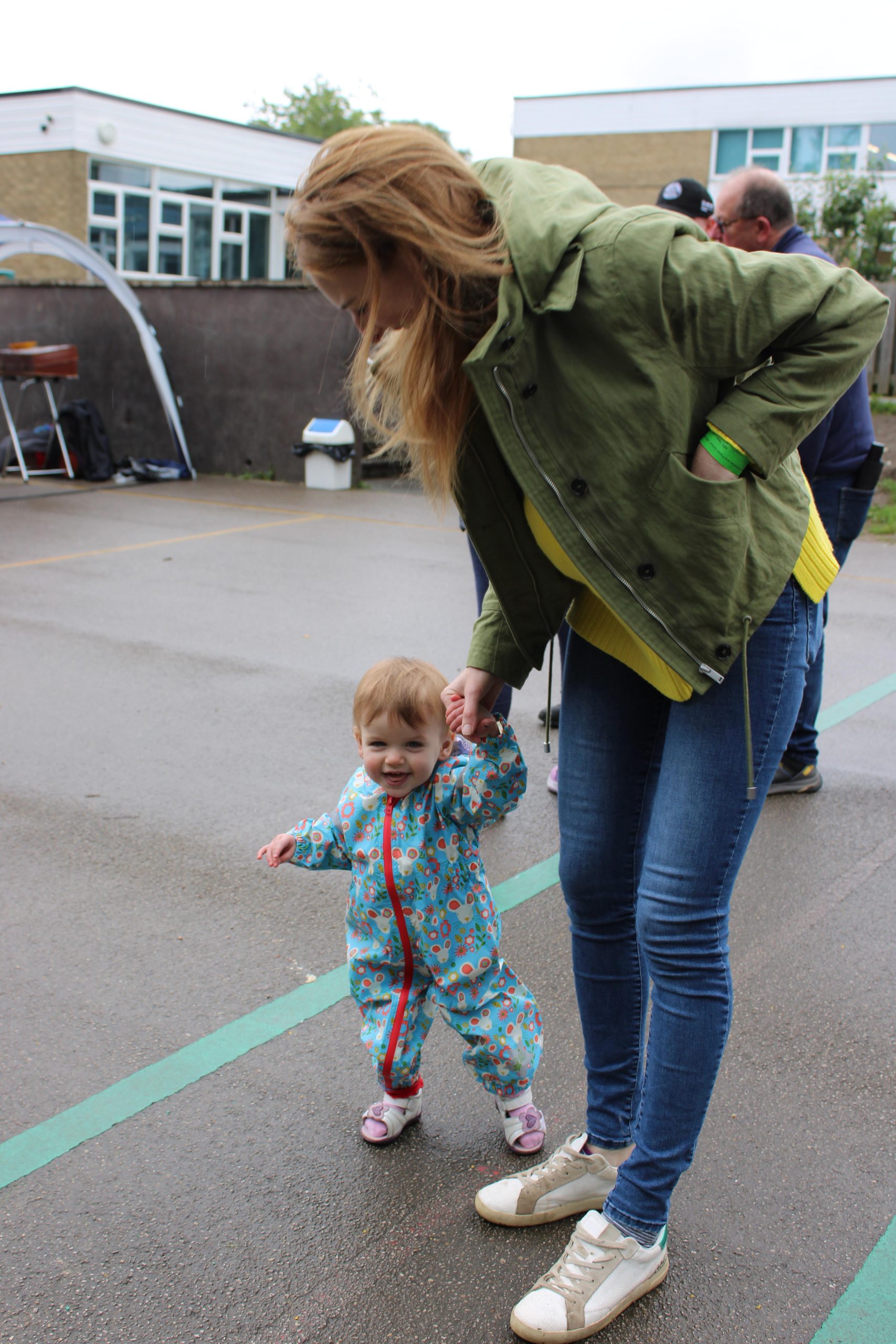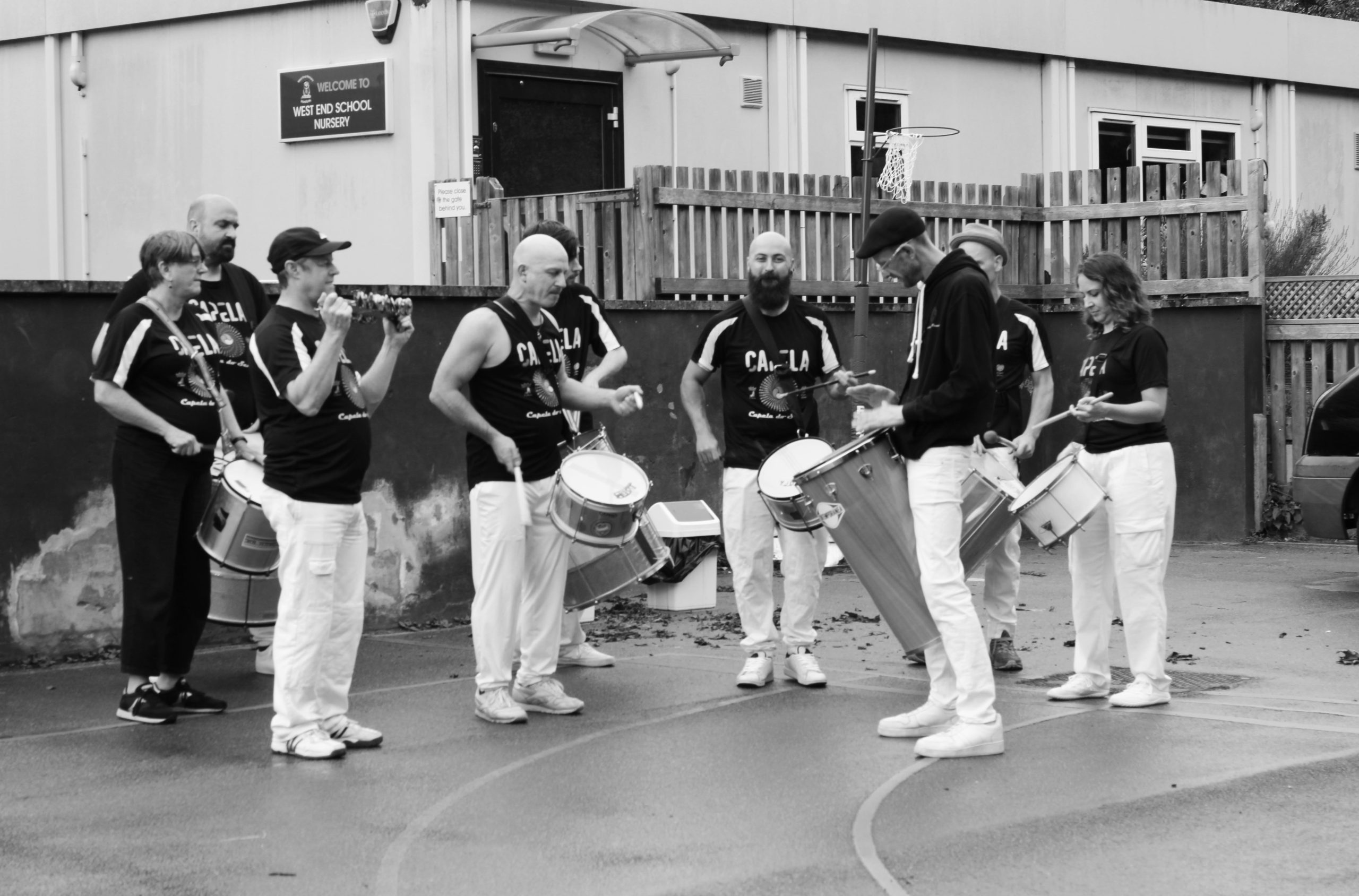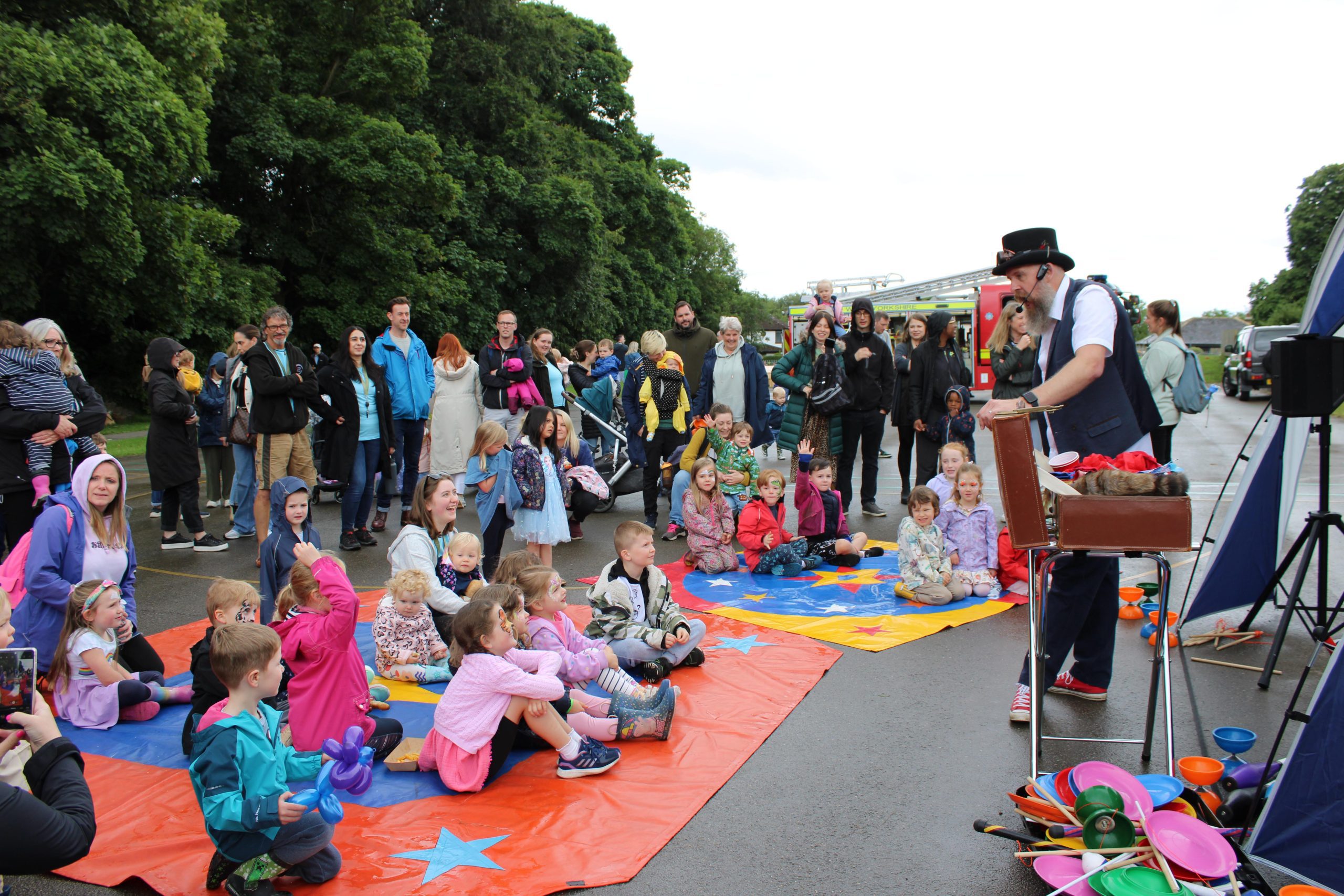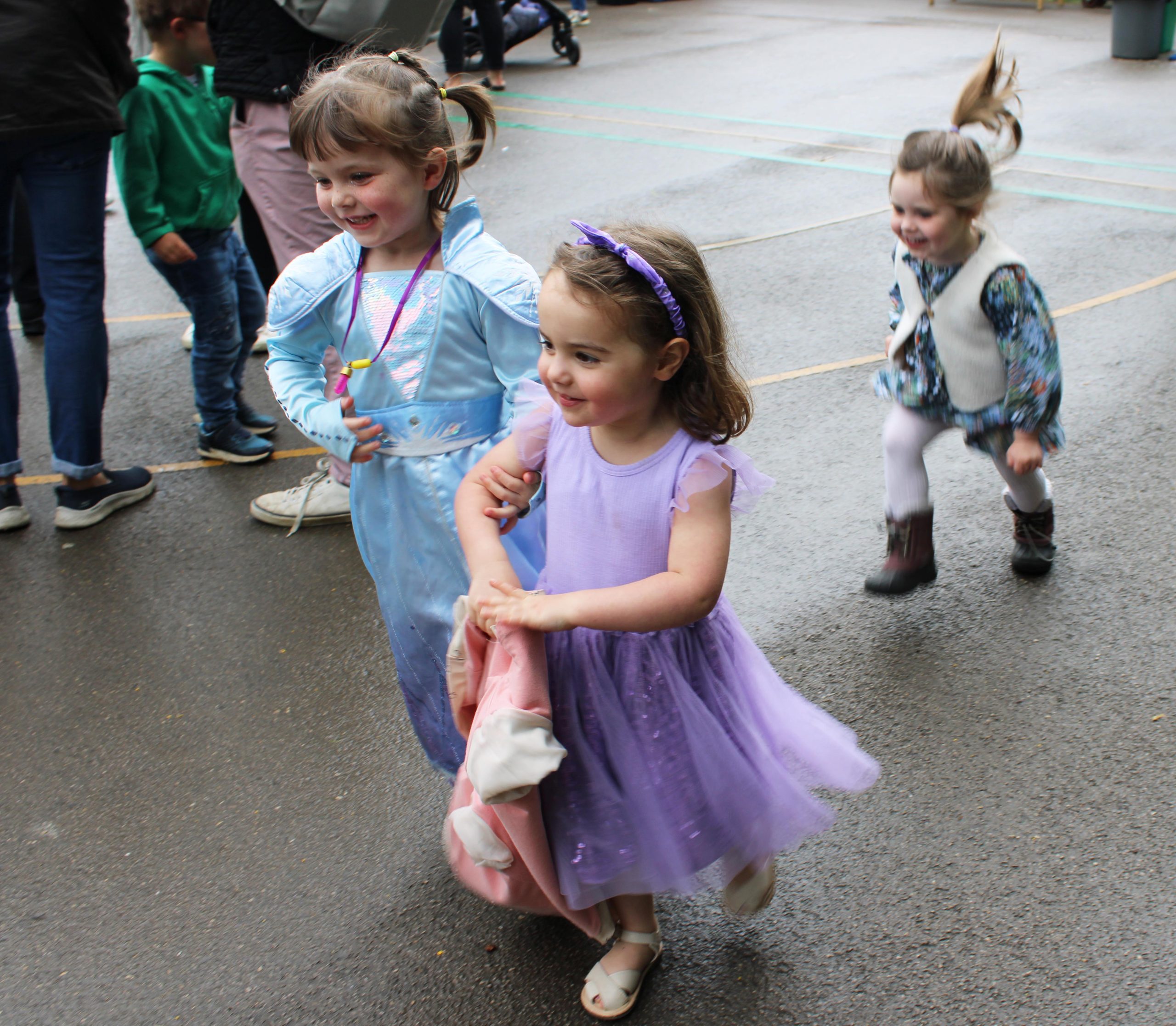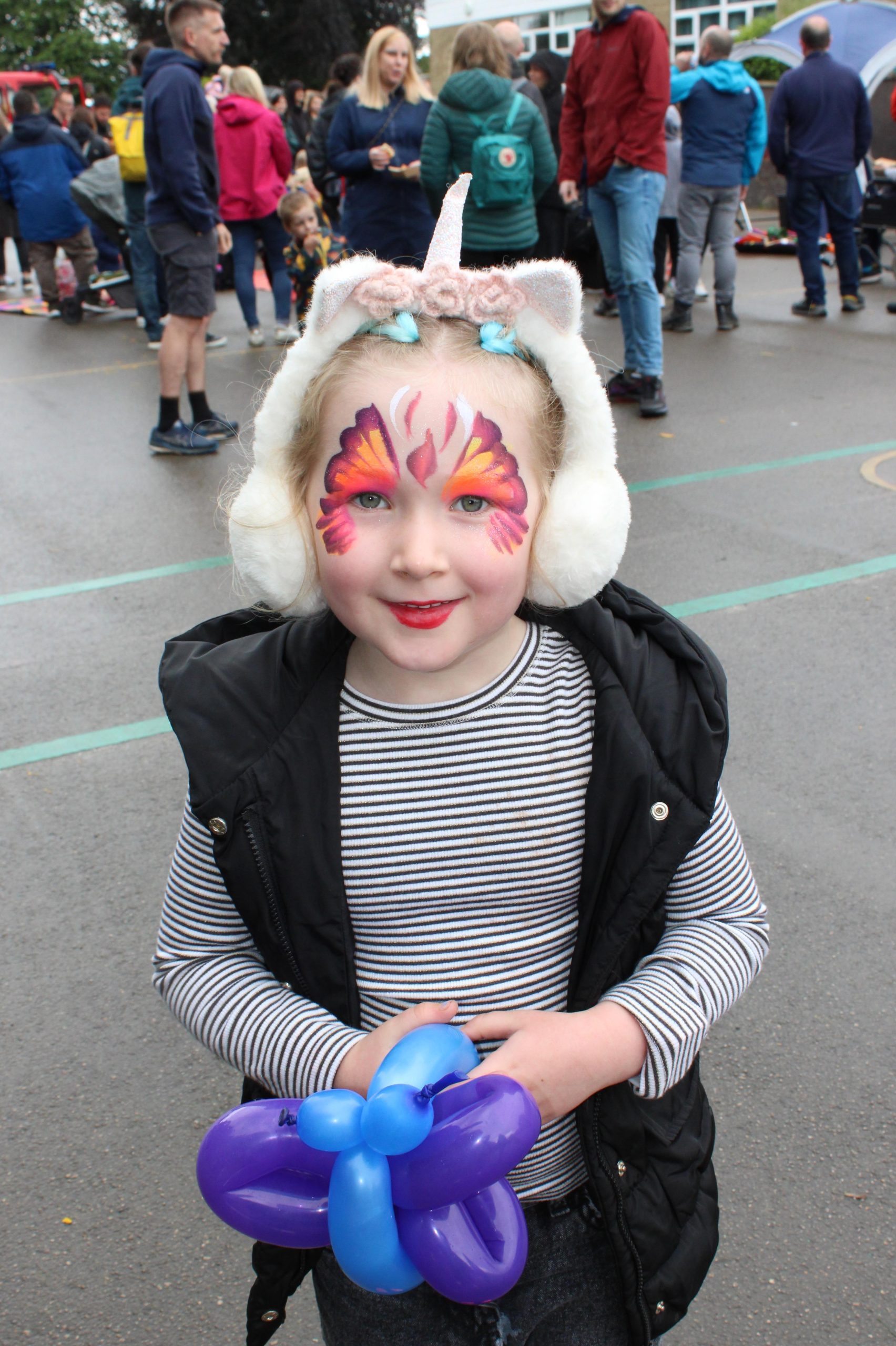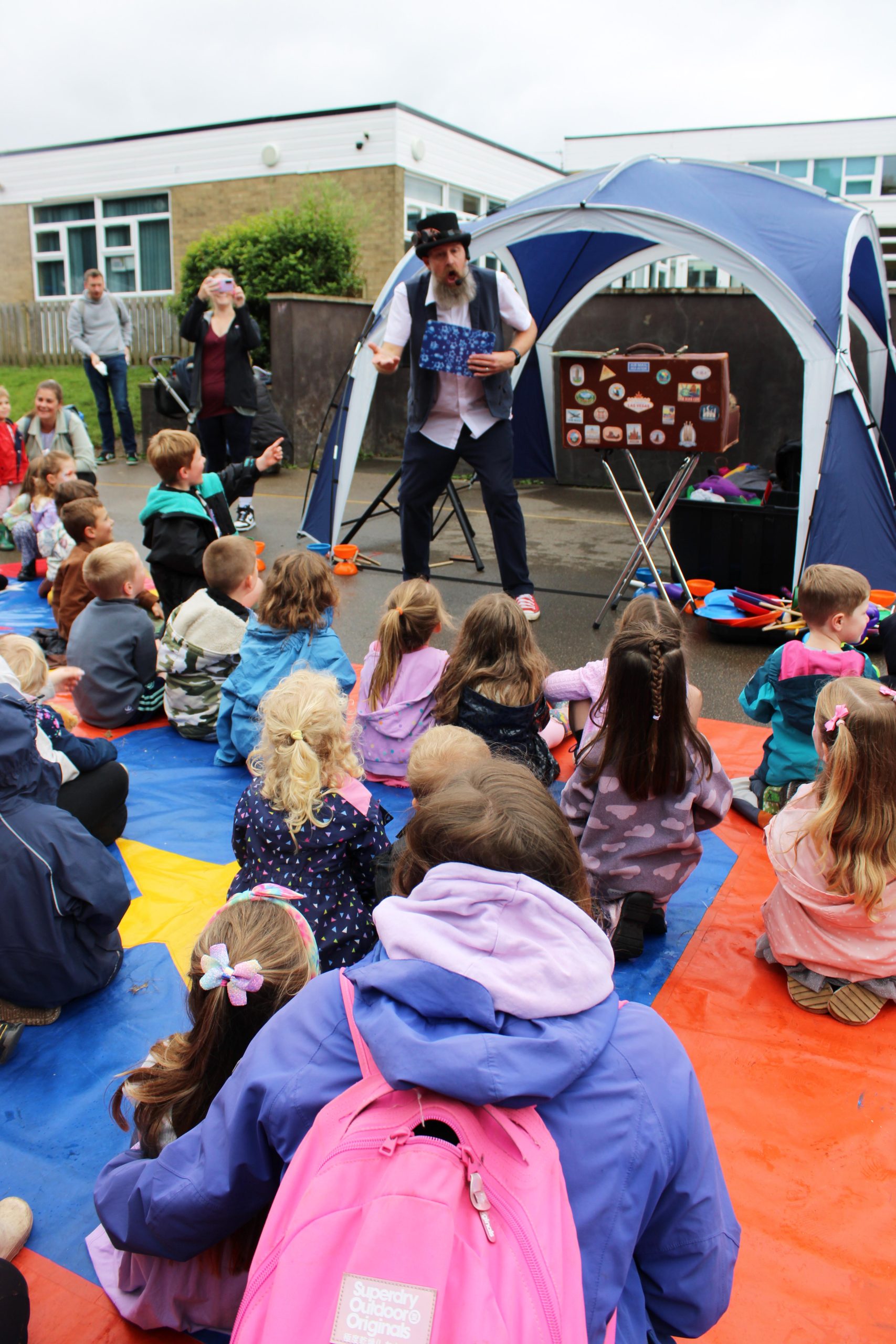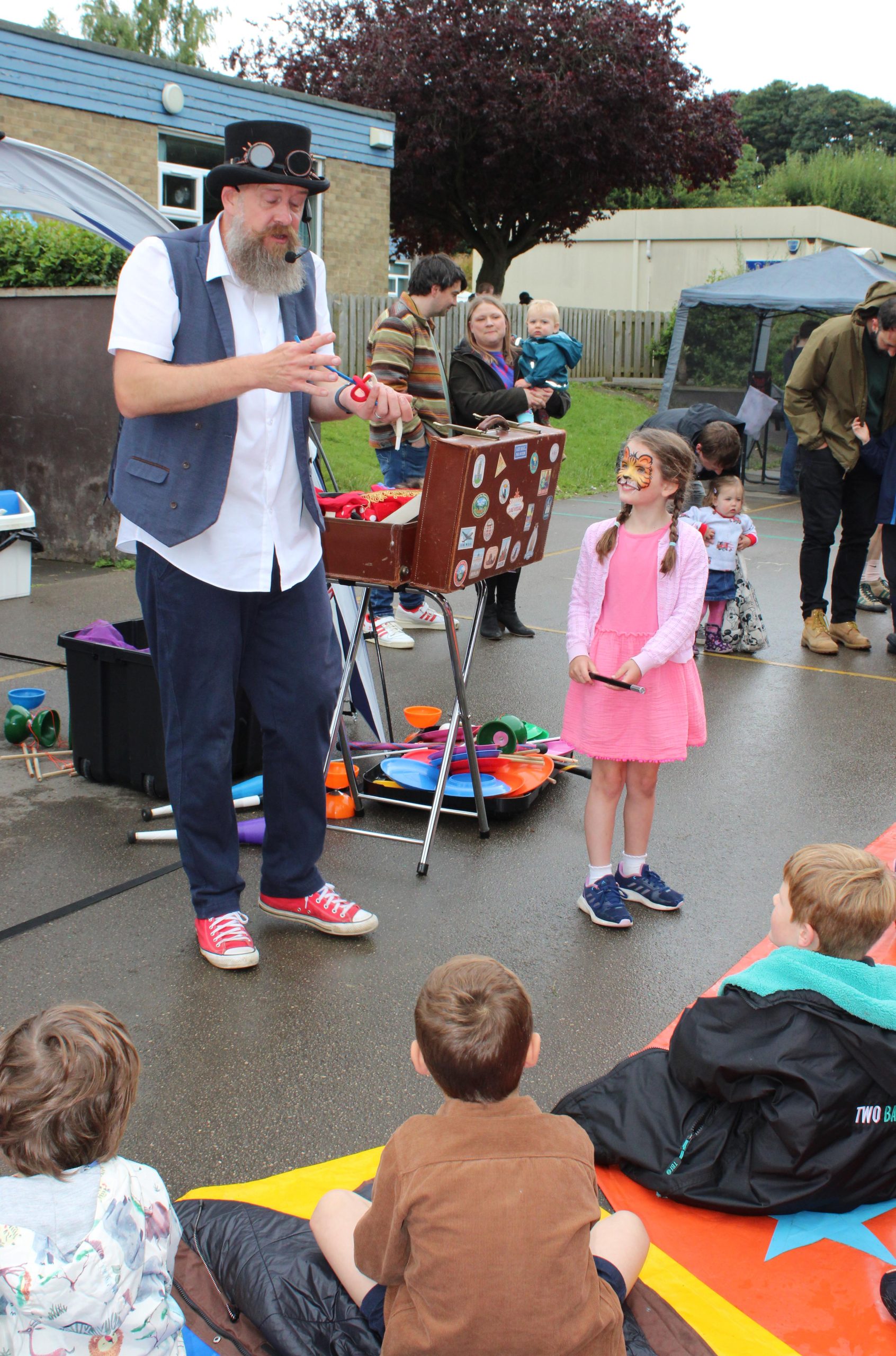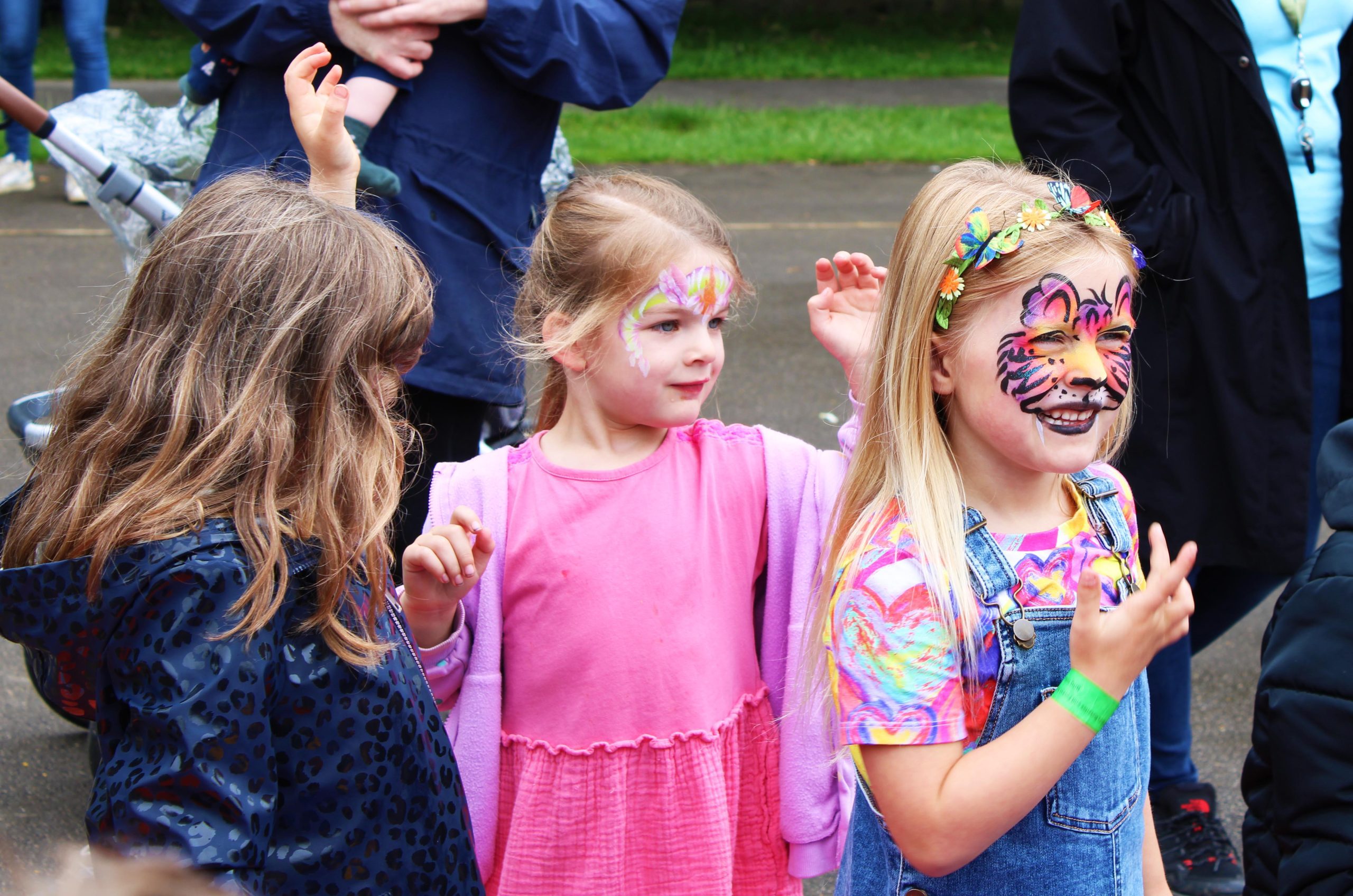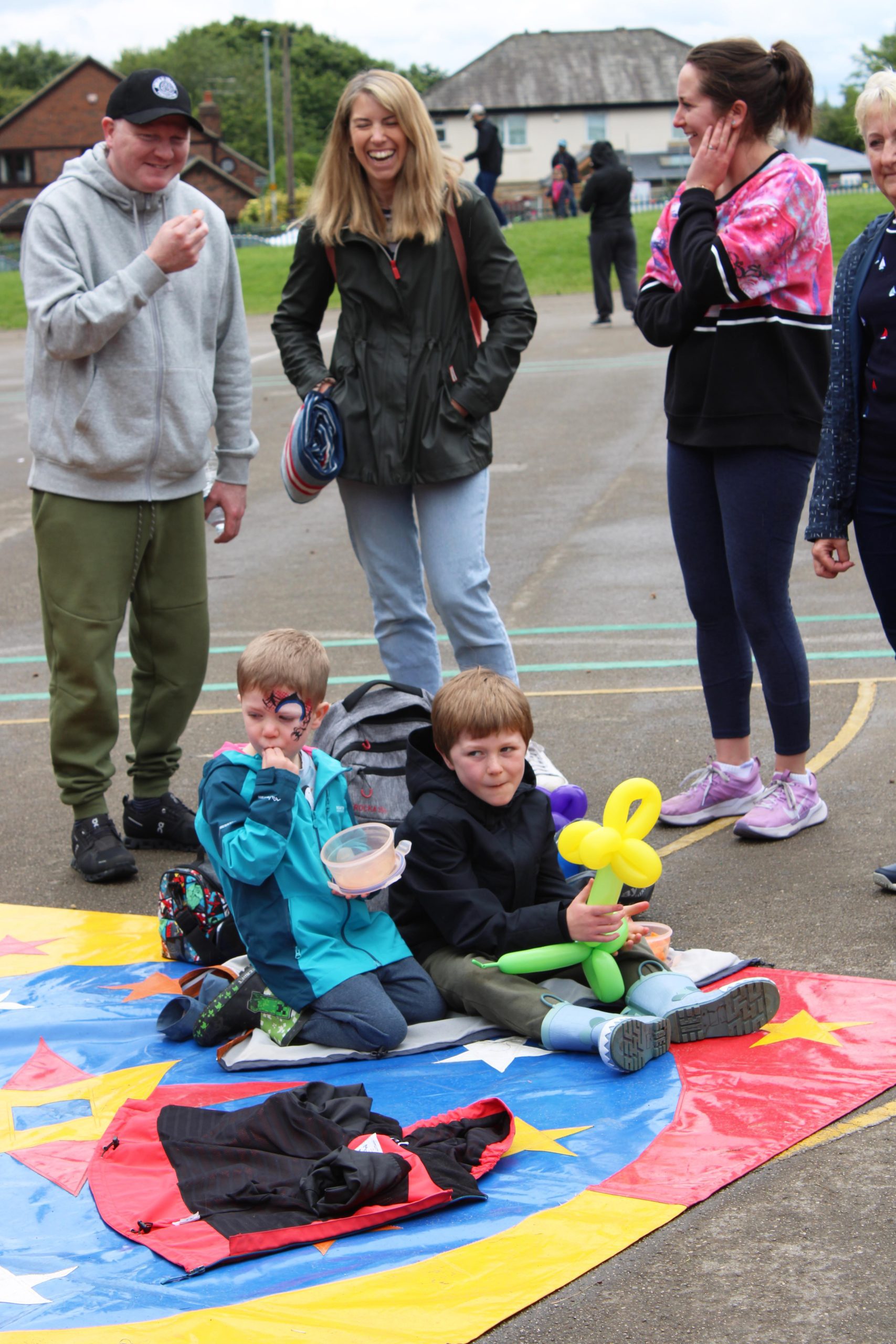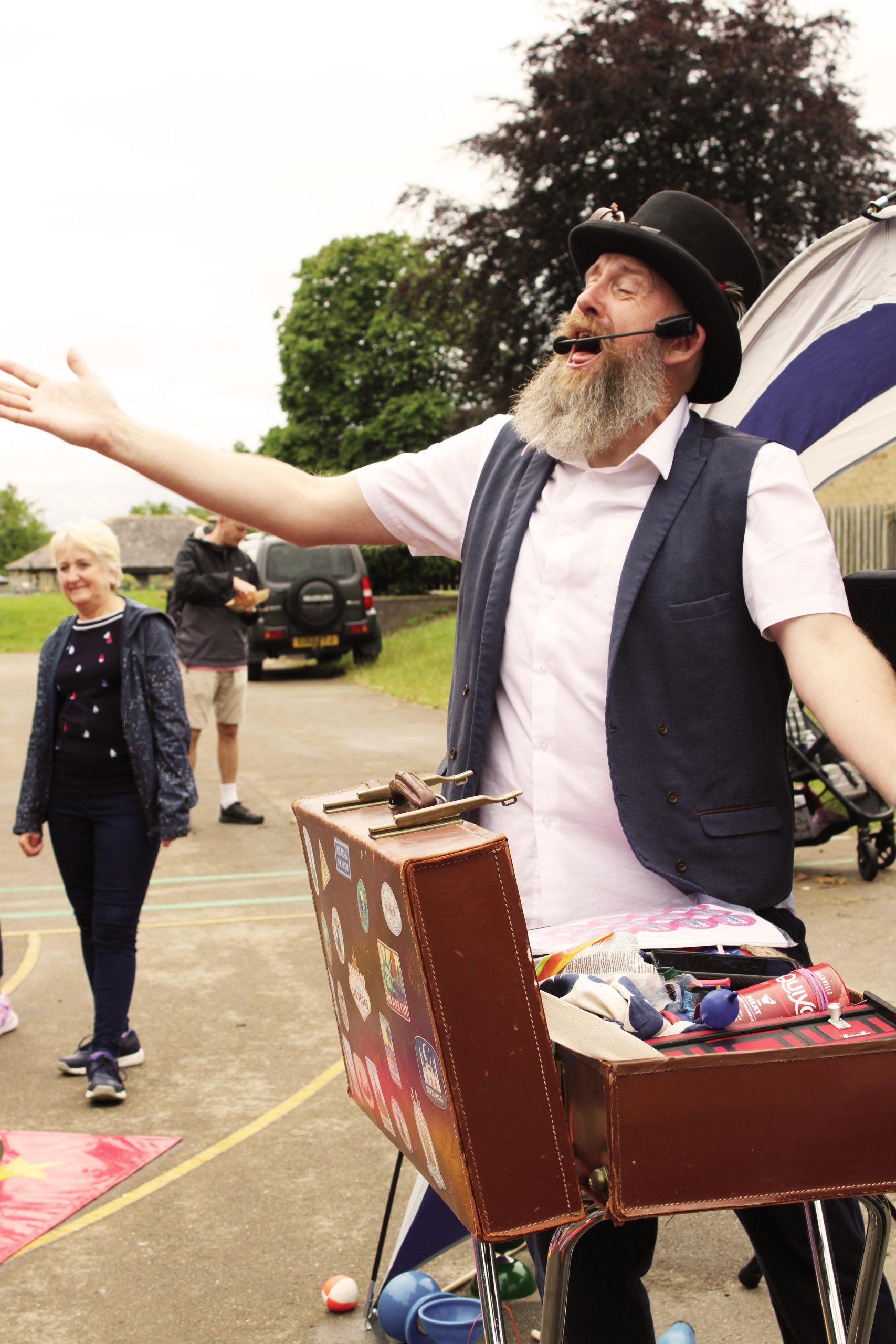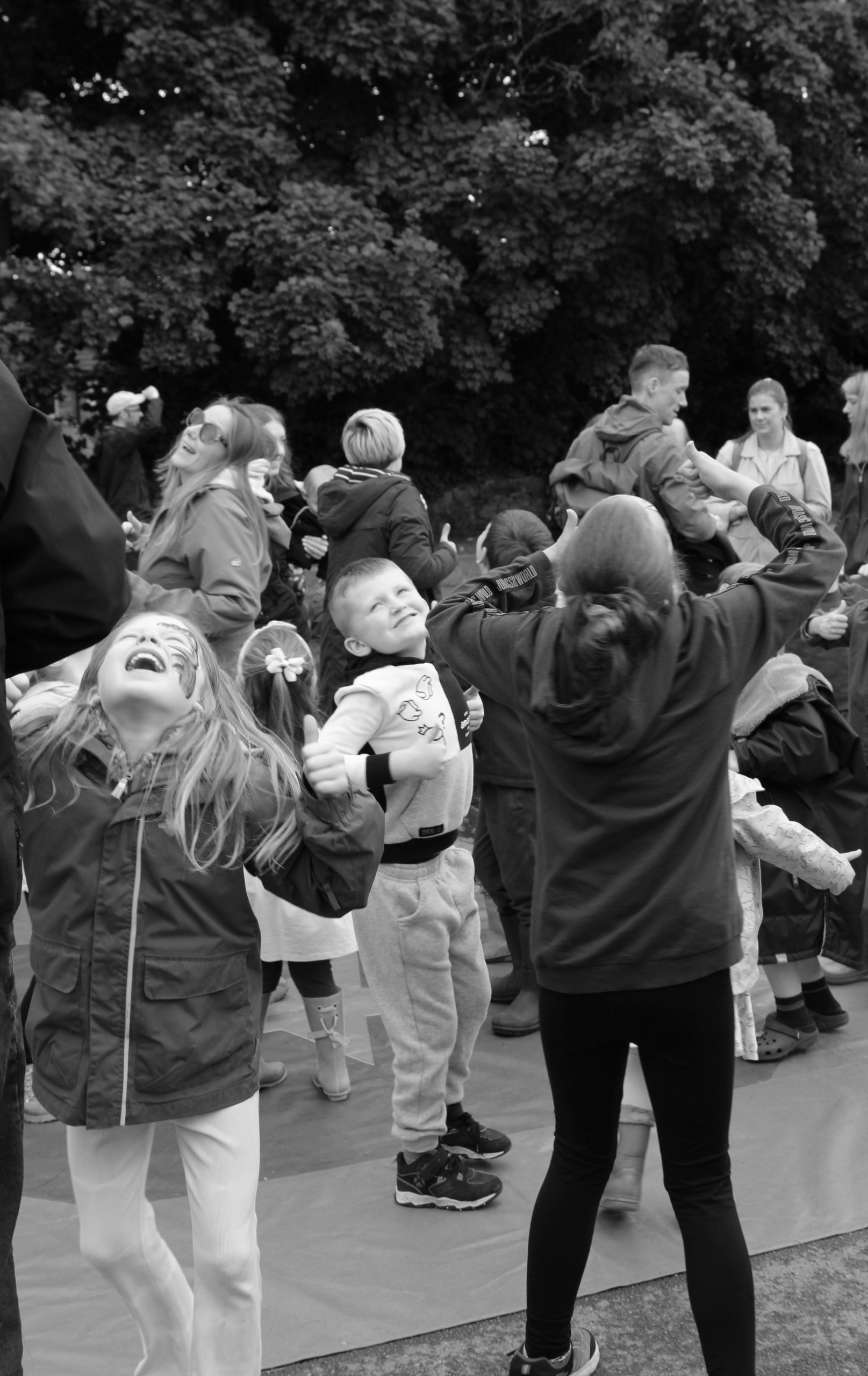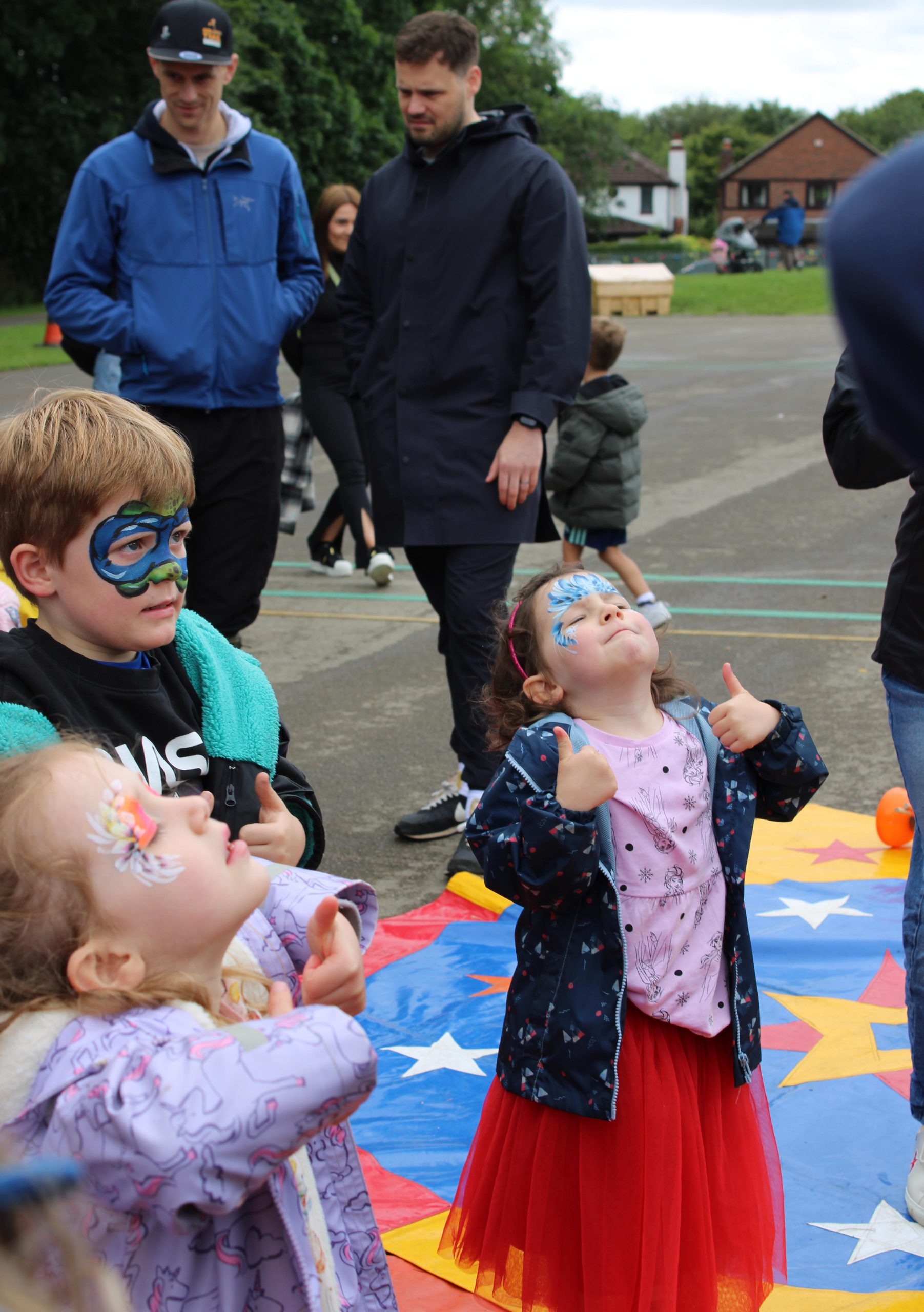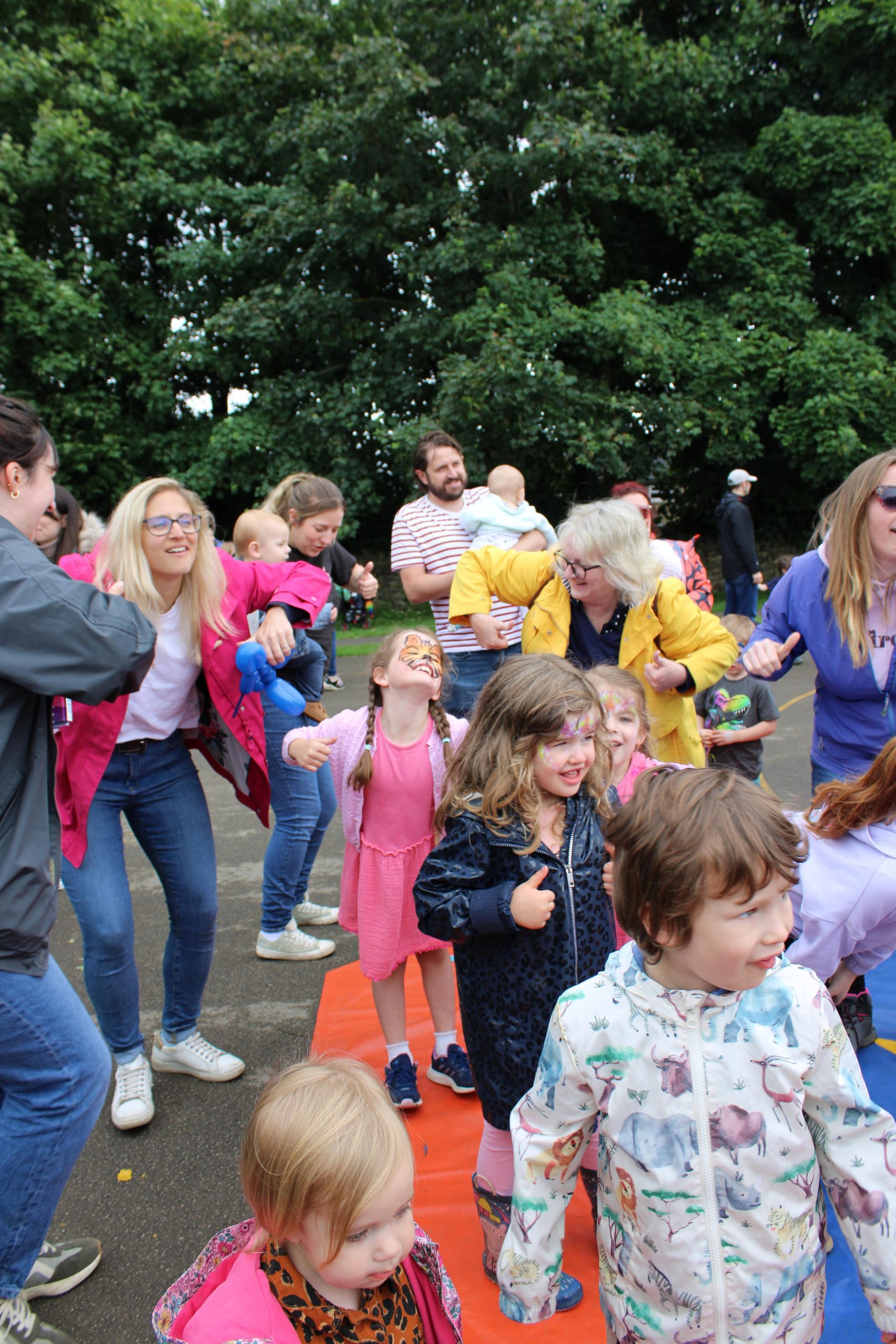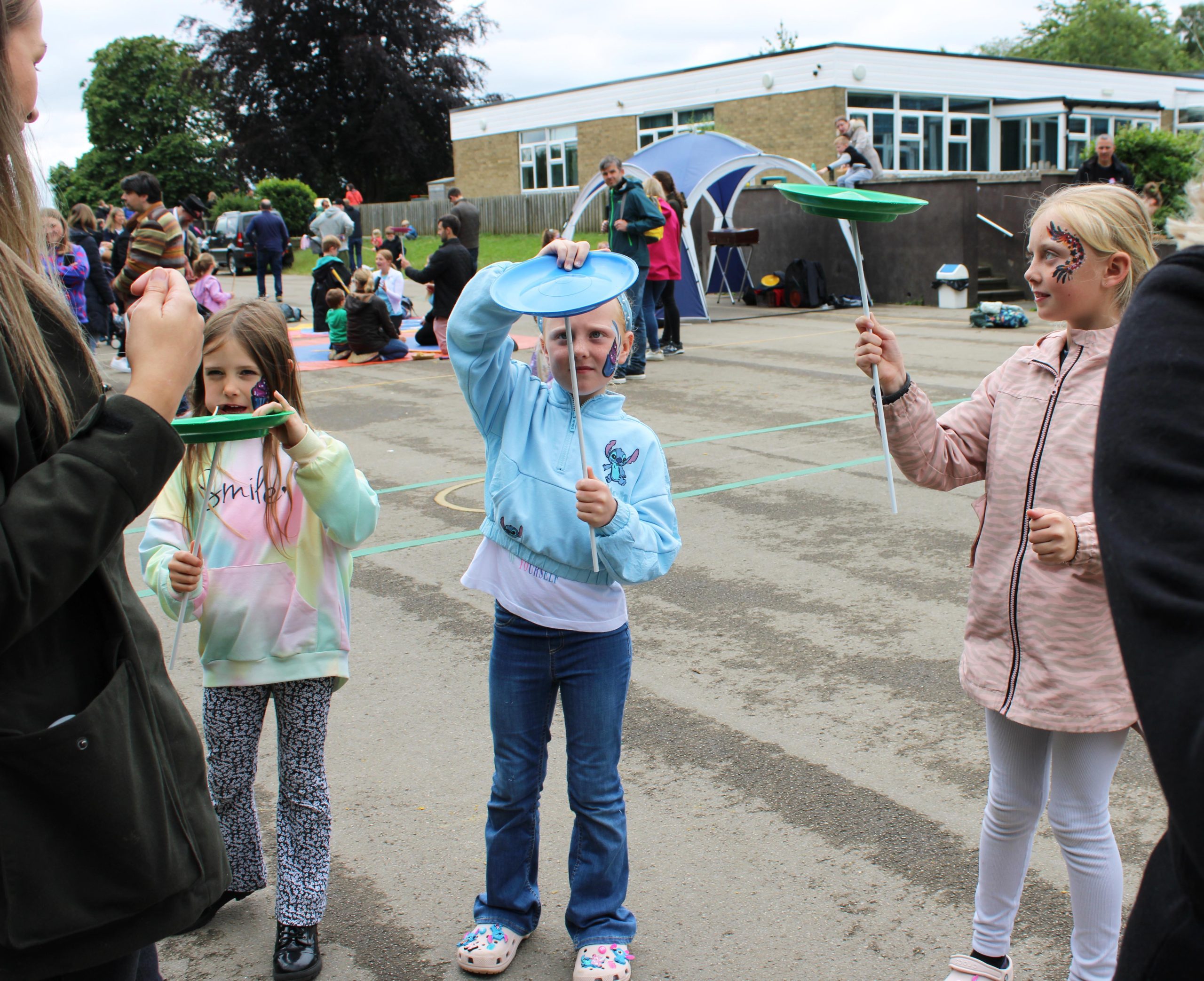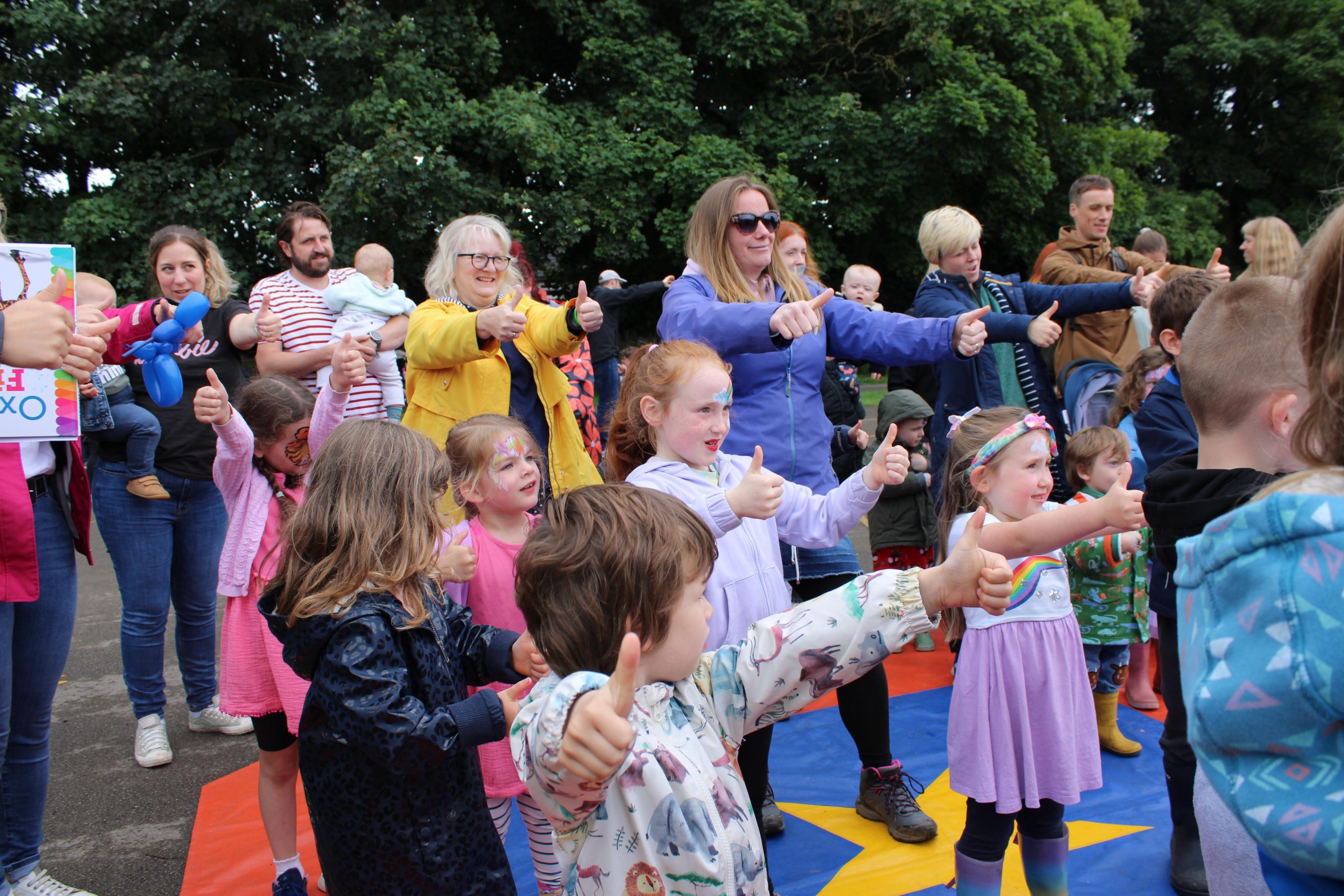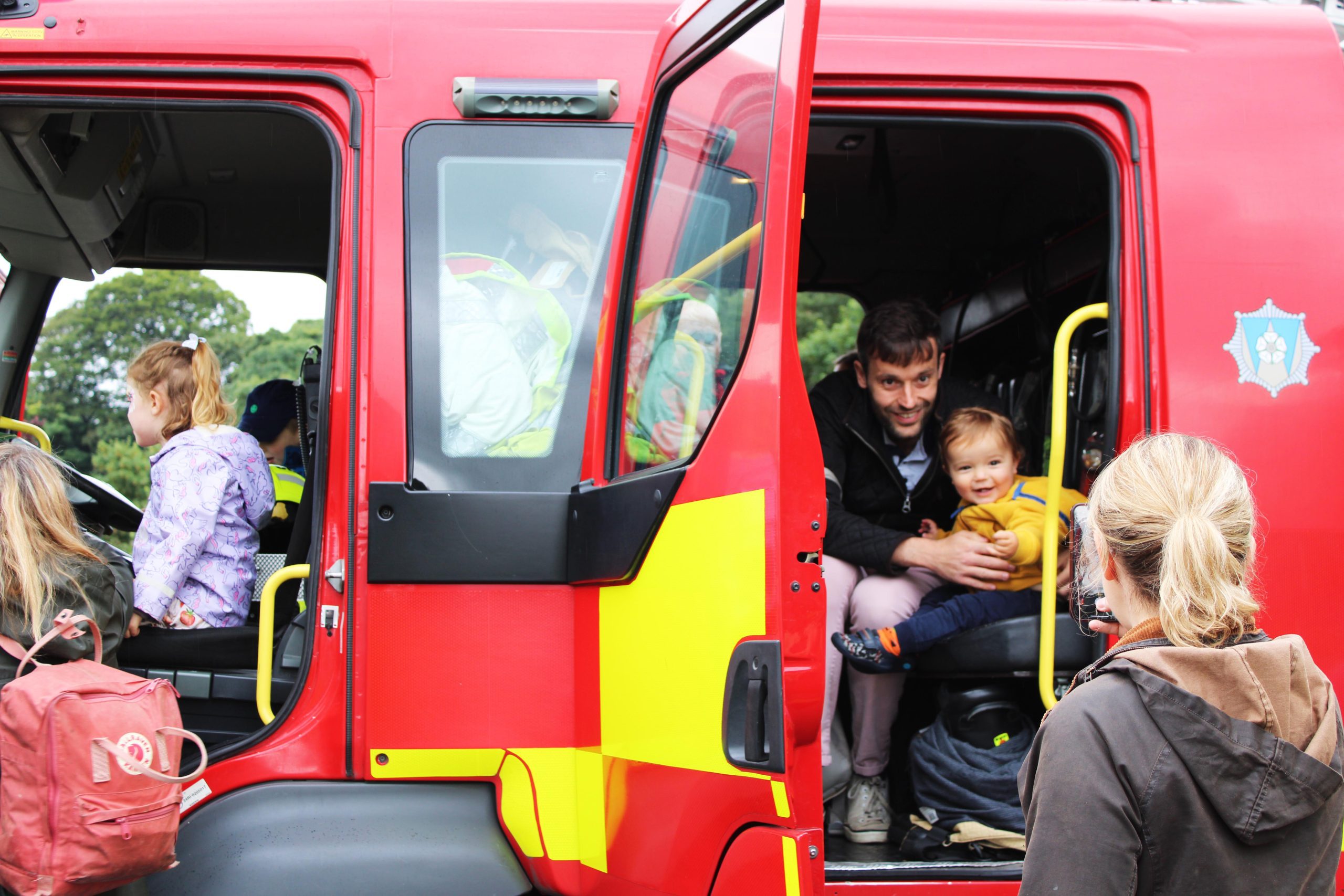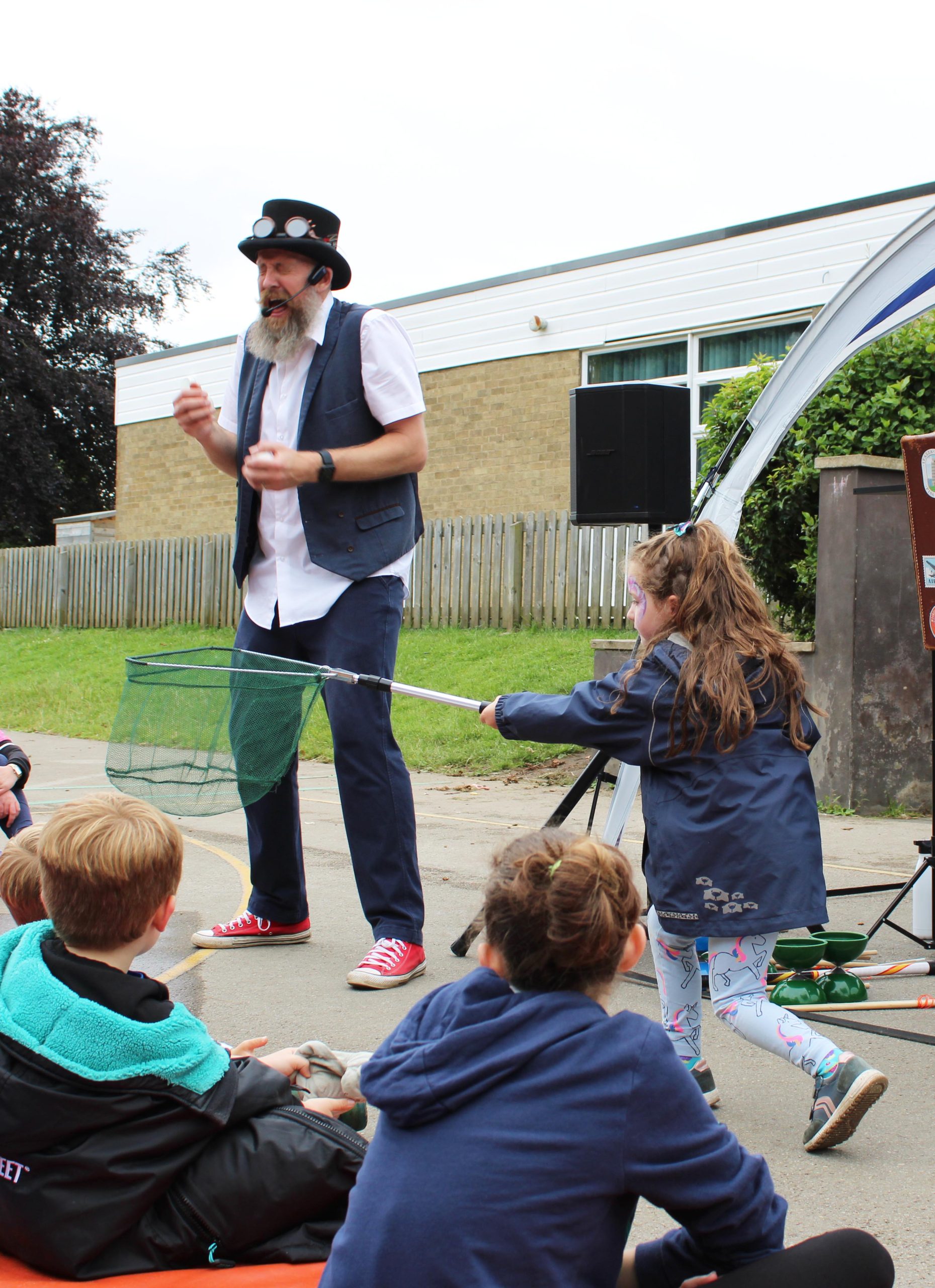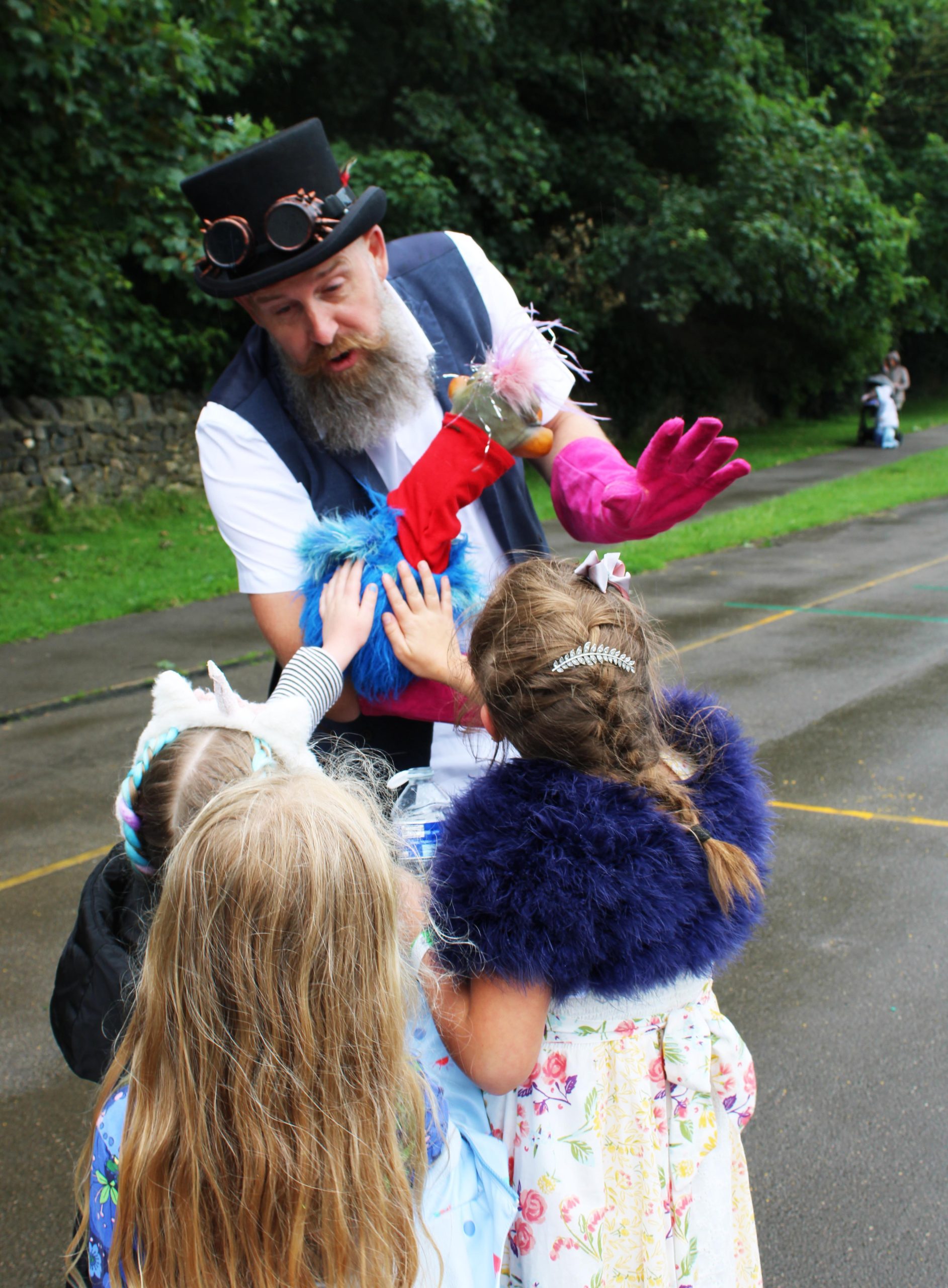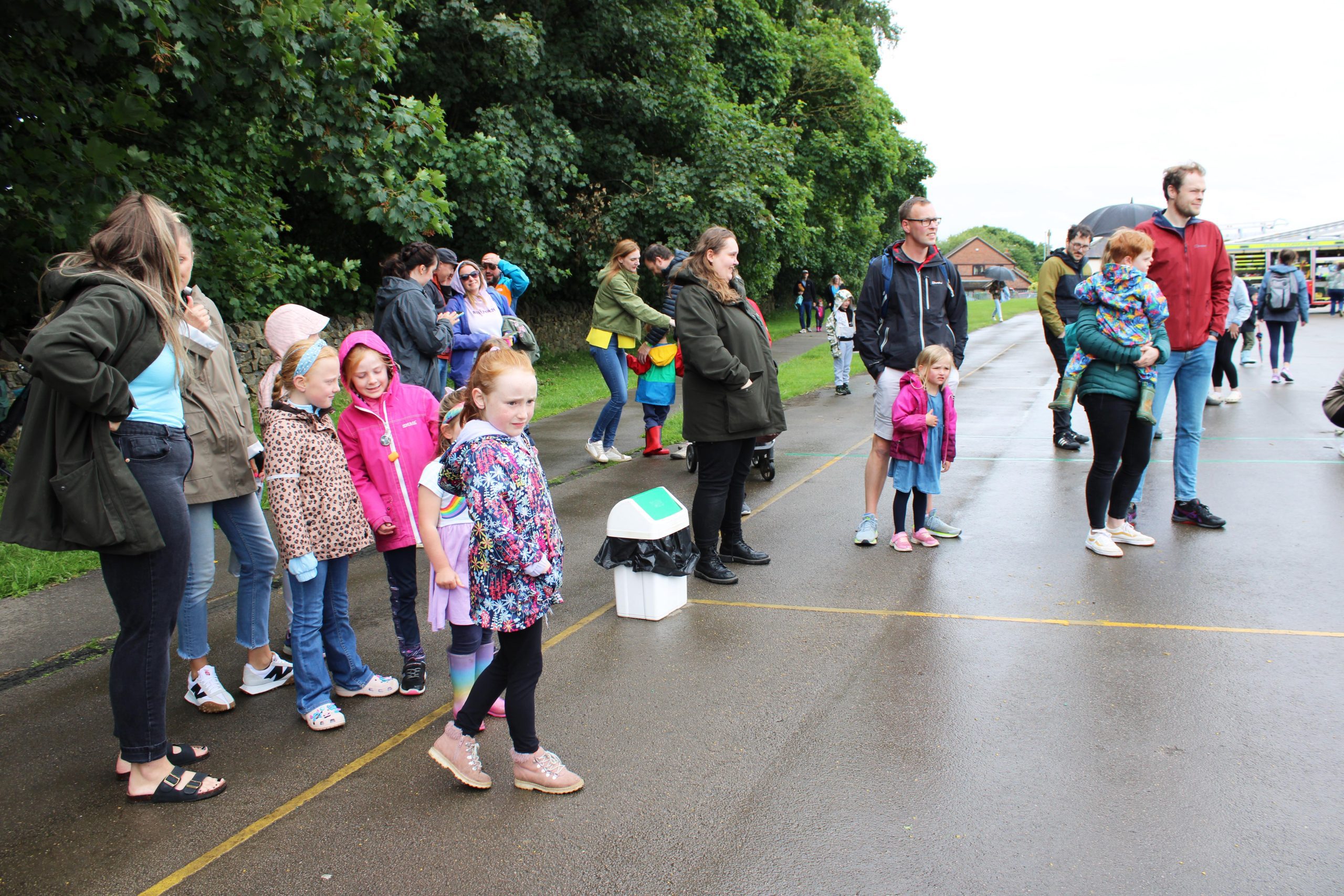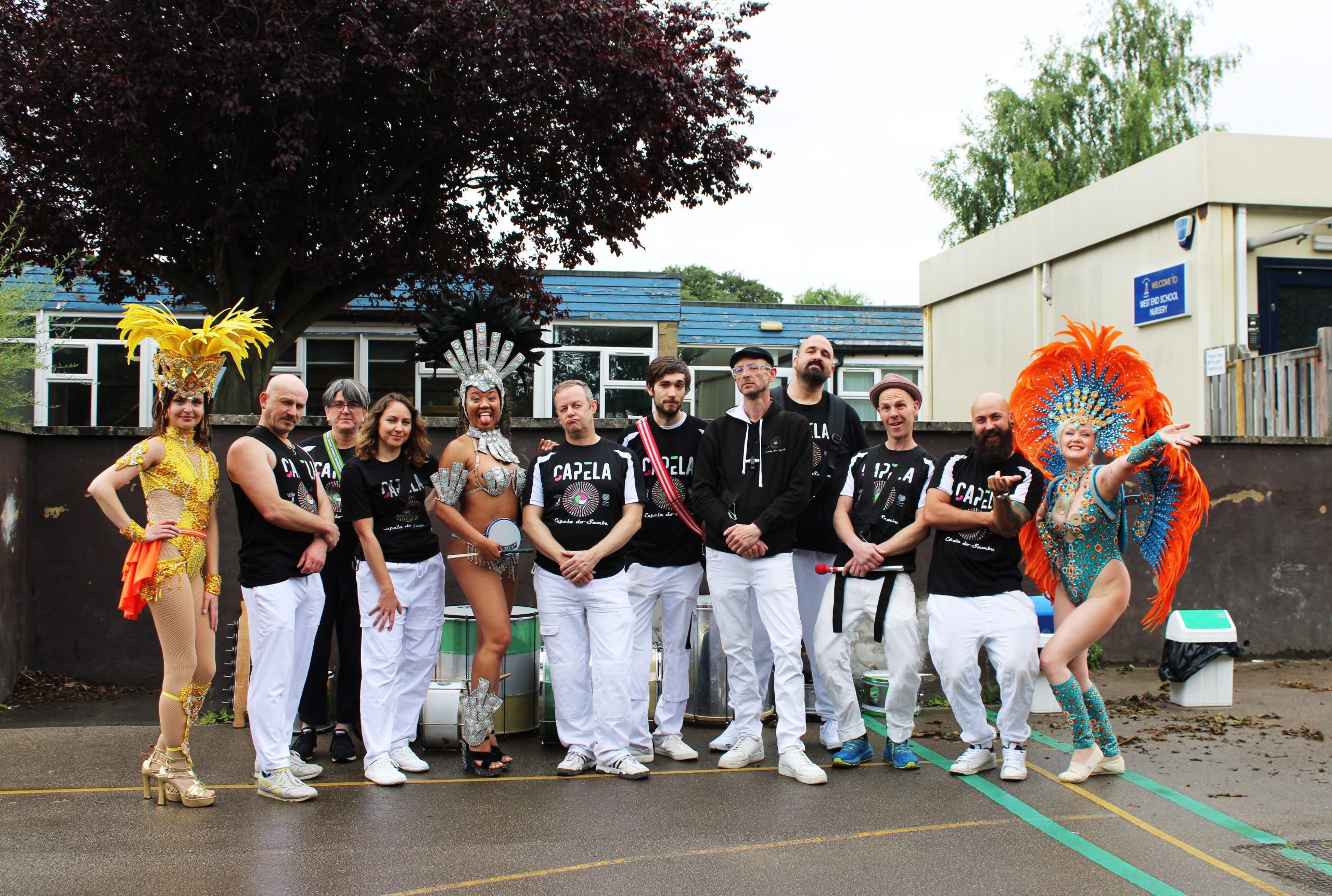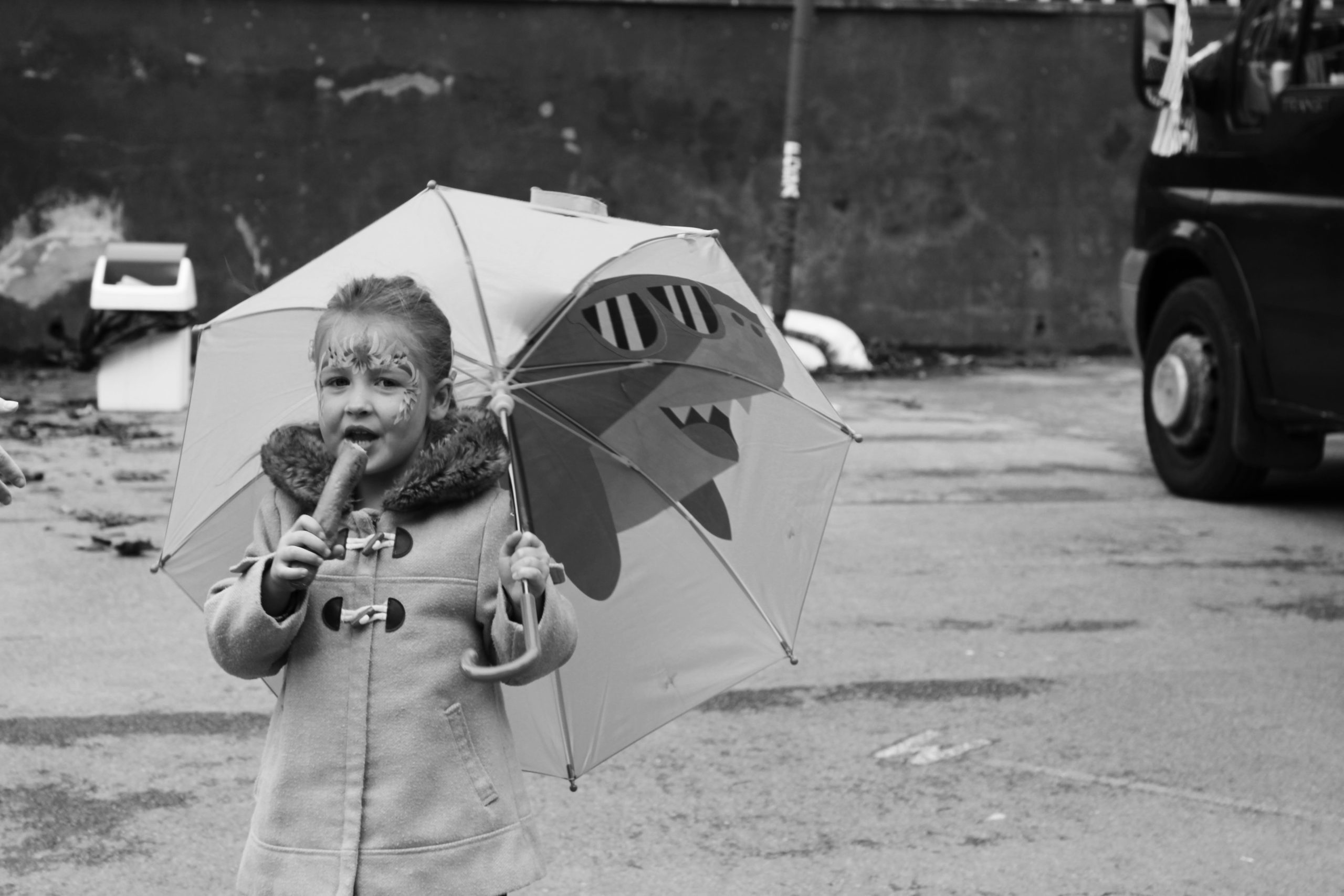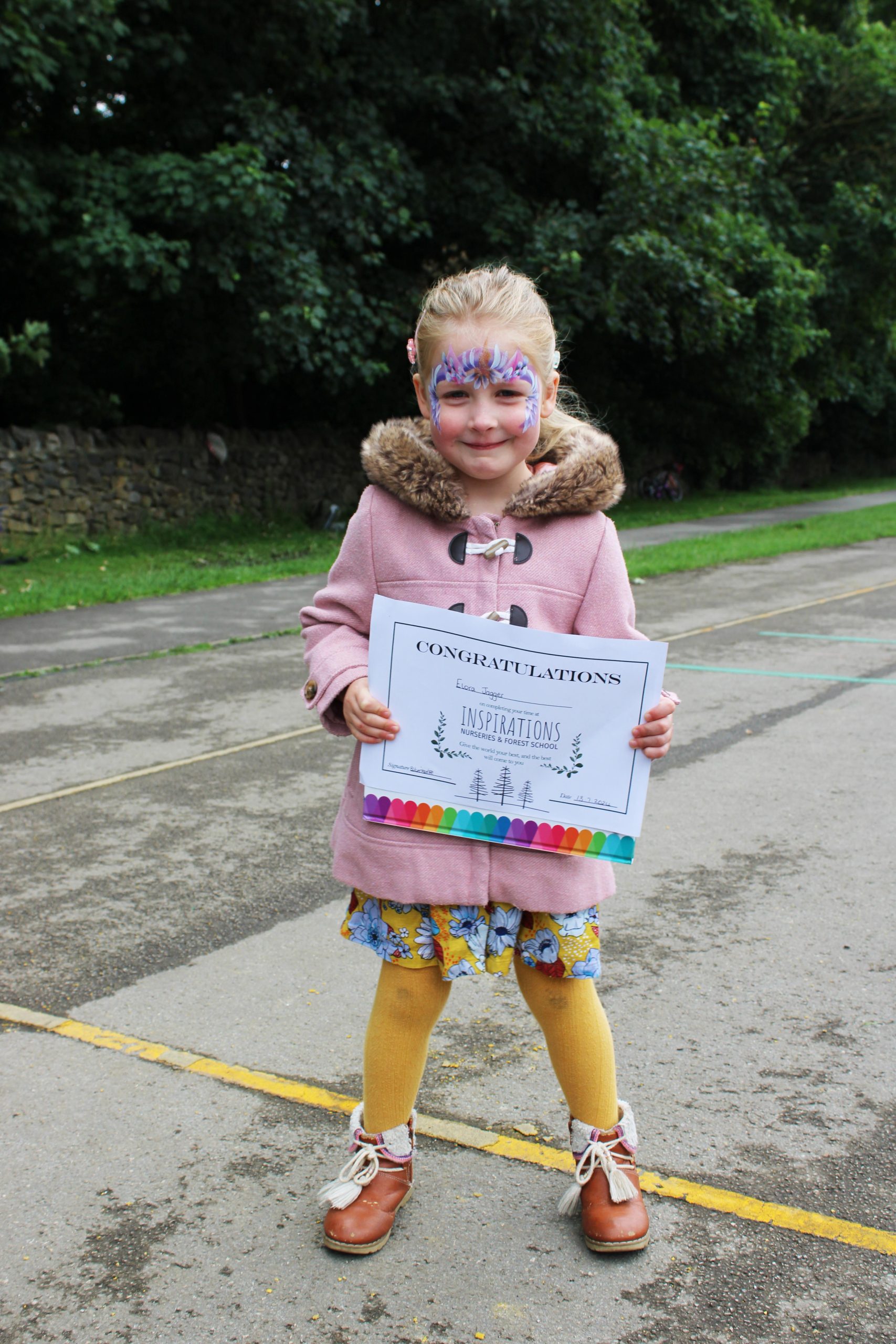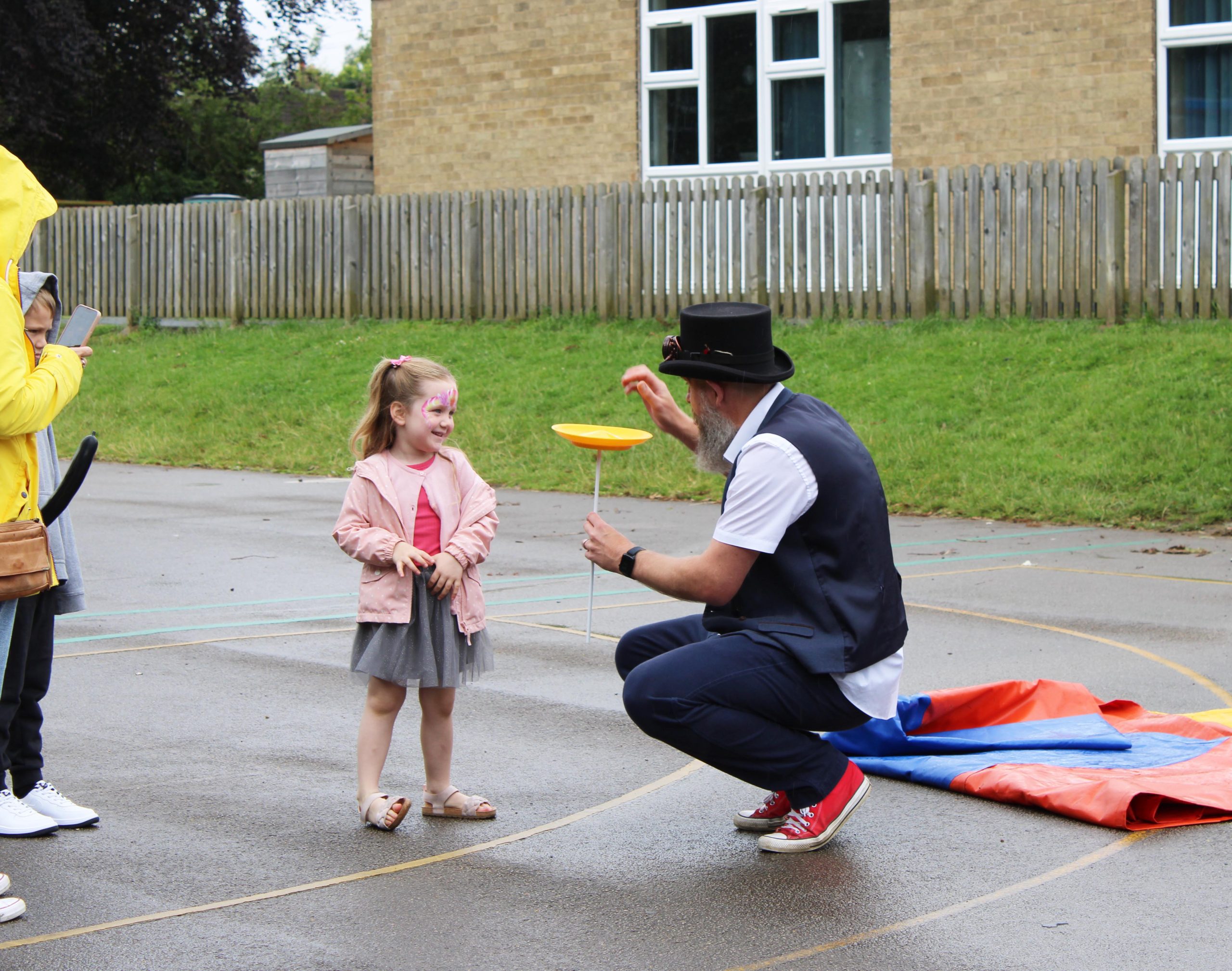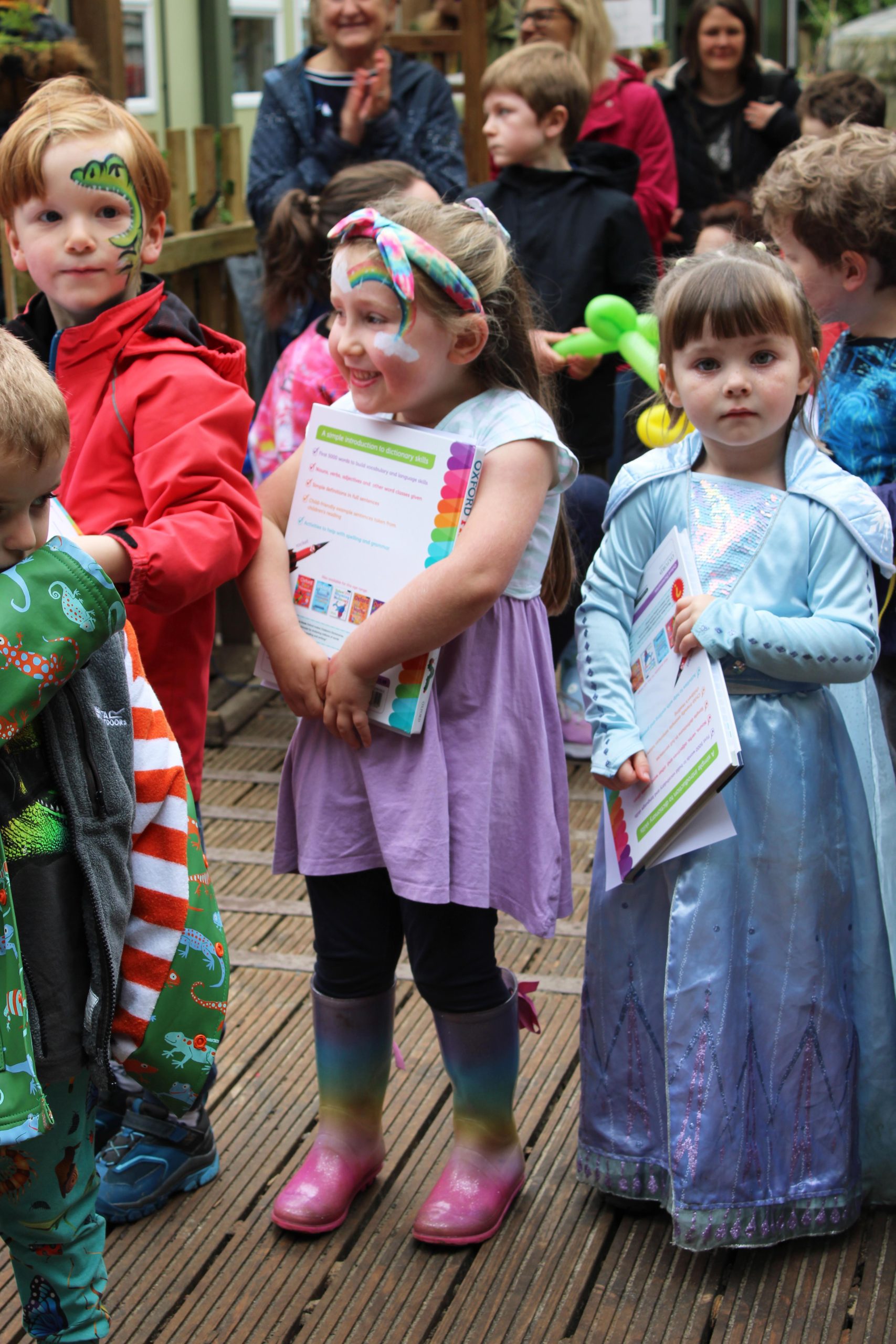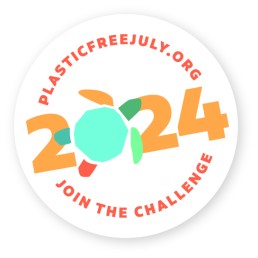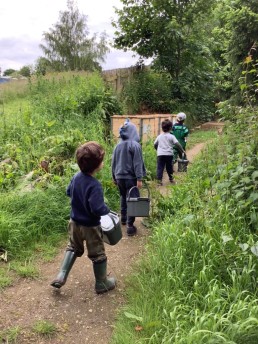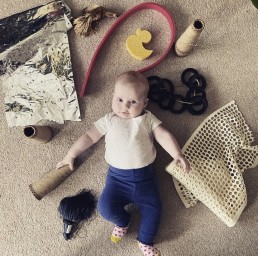We Wish You A Merry (Eco) Christmas
First of all we want to thank you all for coming to our Inspirations Christmas party at the Grove. It was a wonderful reminder of the community we have built from Inspirations, and of course some of the outfits were spectacular. We donated all the leftover trays of prepared food to an event that evening for the homeless, organised by Hidden Homeless. 
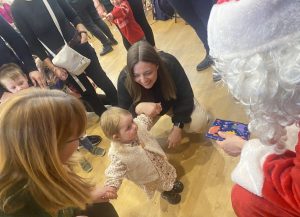
But it’s not just the season for socialising, it's also the season for relaxing, indulging and spending time with loved ones.
In this weeks blog we want to share some tips on how to help look after the planet this Christmas.
Wrapping
Use brown paper to wrap your gifts, and always avoid shiny paper that can't be recycled. Why not use fabric that can be used again and again. Say No to plastic sellotape; order your recyclyable tape here https://www.peacewiththewild.co.uk/product/biodegradable-paper-tape/?gad_source=1&gclid=CjwKCAiA6t-6BhA3EiwAltRFGJPUpmAoUNiSHCZqyHxak4z3kLAFV2jFf3Af5xF3bbc8LkJtdKo7bhoCbe8QAvD_BwE

Gifting
Remember quality not quantity. Shop Local, shop Facebook Market Place, re-gift or even have a go making some gifts yourself. This year I have made a little dolls house inside a small vintage suitcase.
Eat Responsibly
Why not sign up to get a local veg box available at Meanwood Valley Urban Farm or Sutcliffe's Farsley. Save your leftovers, add some wax cloth cover to your christmas list.
Did you know poultry is in the top 10 most wasted foods in the UK and 100,000 tonnes of it ends up in the bin every year. The livestock industry generates 14.5% of all man-made greenhouse gas emissions. It requires huge amounts of space, water and feed. Instead, you could try a meat alternative.
Christmas Tree
Plant your Christmas tree in your garden after Christmas, you can even re use this each year. Of course if you have a fake tree that get's used year after year this is fabulous too.
Compost
Get yourself one of our Grey Compost caddies from outside our Pre-School Outdoor classroom. Fill it with cardboard, fruit and veg waste, egg shells, tea and coffee and bring it back to us to make compost.
What green act will you commit to this christmas? Let us know and we woud love to share.
Have a wonderful and happy festive period, and don't forget to get out into nature and enjoy all that we have for free.
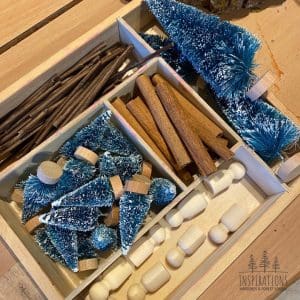
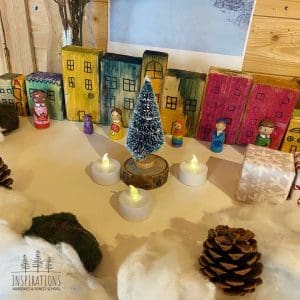
The Importance of Settling into Pre-School Part 2
Adel Inspirations
Read the first part of this blog here- https://inspirationsnurseries.co.uk/settling-into-pre-school/
So why is Pre-School so important? Following on from last weeks blog we break down the fundamentals of settling your child into our Pre-School setting, whether it in Horsforth or Adel. Settling in at preschool is much more than just an adjustment period. It is a crucial process that helps children develop emotionally, socially, and cognitively. A well-supported transition sets the stage for a child’s lifelong relationship with learning, friendships, and independence.
Focus on Prime Areas
Inspirations staff are fully aware that a child’s prime areas of learning should be a primary focus in order for children to feel secure and ready to interact. This is a critical time for communication and language development. As children settle in, they begin to interact more with teachers and peers, enhancing their vocabulary, listening skills, and ability to express ideas. The settling-in period ensures that children feel comfortable enough to ask questions, seek help, and fully participate in group discussions, all of which are crucial for their development. Settling in then allows children to open up to the rich learning experiences offered at Inspirations. As children become comfortable in their new surroundings, they become more engaged in learning activities, arts and crafts, story time and interactive play.
Strengthening Parent-Teacher Relationships
Settling in doesn’t just benefit the child—it’s also an opportunity for parents to build a strong relationship with the preschool staff. Open communication between parents and practitioners is essential to ensure that the child’s transition into preschool is as smooth as possible. During the settling-in period, staff, especially the family’s key person, often communicate regularly with parents about how the child is adjusting, any challenges they are facing, and their daily progress.
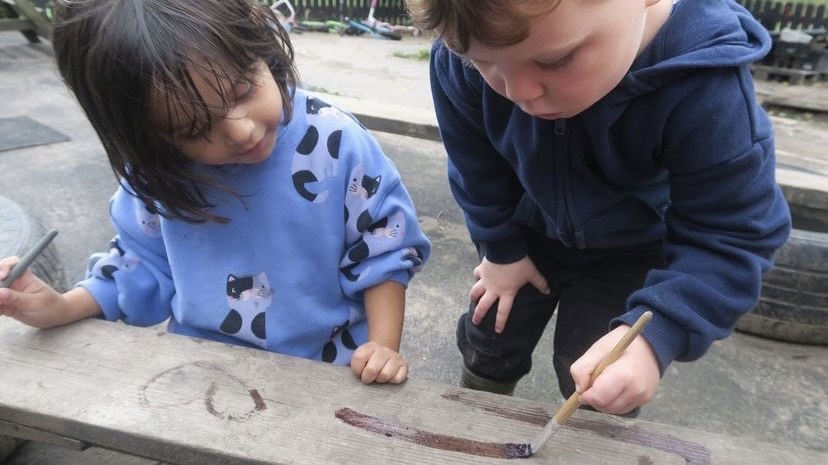
Parents can share insights about their child’s preferences, routines, or any anxieties they might have, which helps staff provide personalized support. This ongoing dialogue fosters trust and ensures that the child’s emotional, social, and academic needs are being met, both at home and at preschool. At inspirations, parents are encouraged to arrange meetings or to phone anytime to discuss their children’s progress rather than just waiting for ‘parent’s consultation evenings’, our lines of communication are always open throughout the year.
Creating a Positive Attitude Toward Learning
Perhaps one of the most significant long-term benefits of settling in at preschool is that it helps create a positive attitude toward school and learning. If a child has a smooth, supportive transition into preschool, they are more likely to associate educational settings with feelings of excitement, curiosity, and joy. This positive association can spark a lifelong love for learning, which is critical for their future academic success.
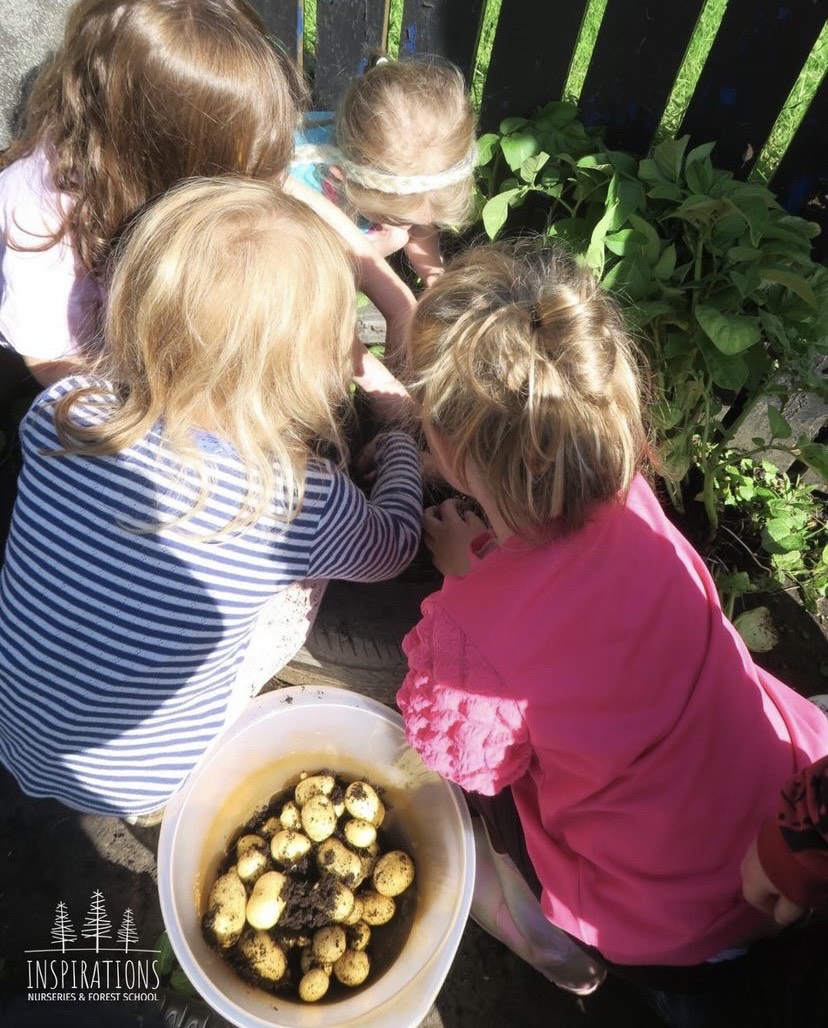
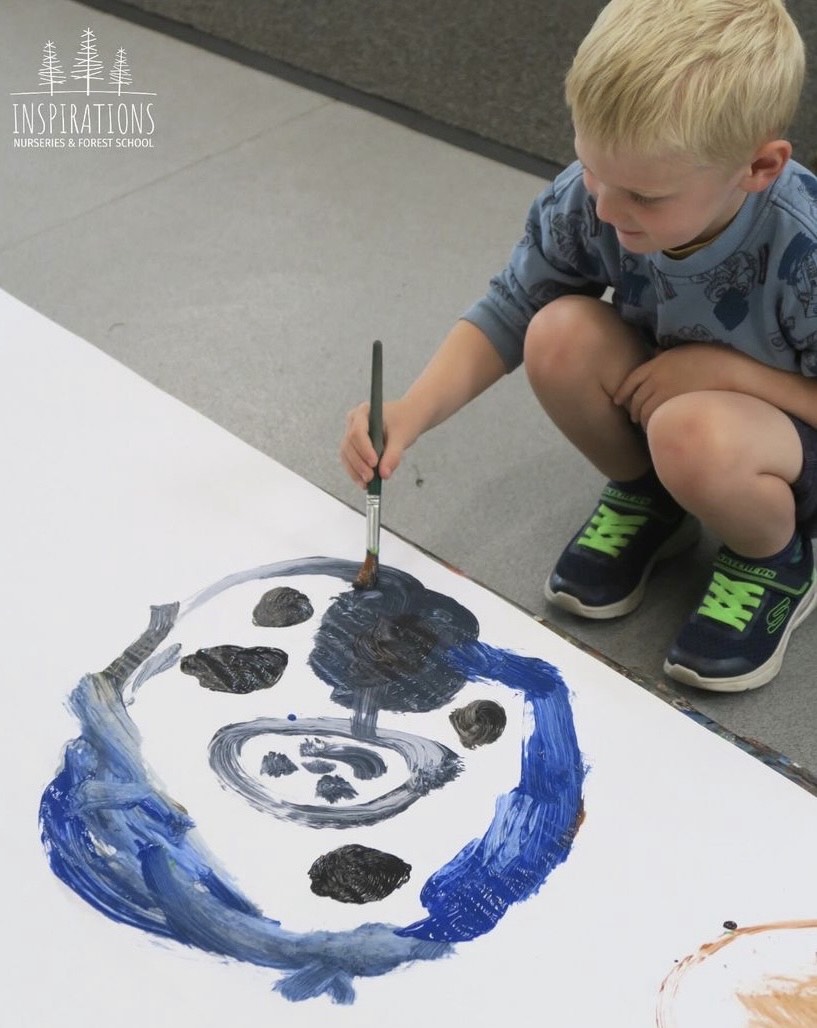
As parents, caregivers, and educators, we should recognise the importance of giving children the time, space, and support they need to settle in and feel confident in their new preschool environment. After all, this is the beginning of a journey filled with discovery, growth, and endless possibilities.
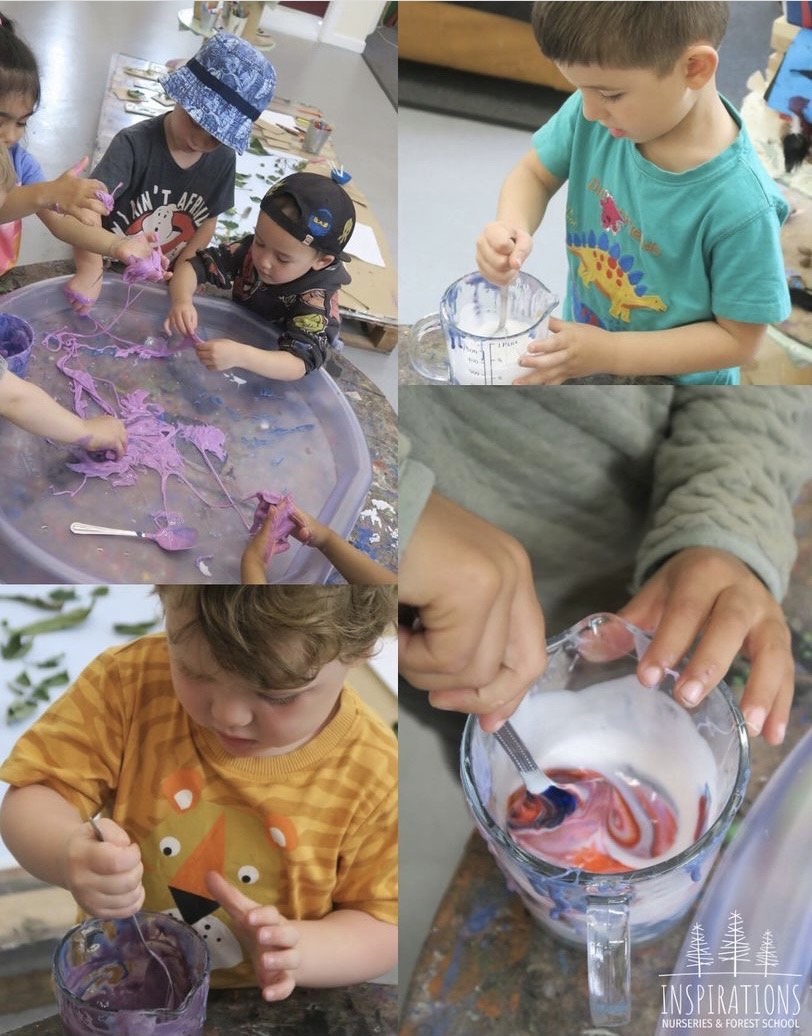 -Deborah (Adel Inspirations Nursery Manager)
-Deborah (Adel Inspirations Nursery Manager)
Adel Inspirations- The importance of Settling Into Pre-School
Part 1
Adel Inspirations
Starting preschool is a monumental milestone in every child's life. It marks the first time many children step into an environment away from their home and parents, where they begin to interact with a broader world of peers, teachers, and structured activities. This transition, while exciting, can also be overwhelming for both children and their families. This is where the process of "settling in" becomes essential. It isn't just about helping children feel comfortable in a new environment—it lays the groundwork for their emotional, social, and cognitive development.
Why settling into preschool is so important.
Building Emotional Security
One of the most immediate benefits of helping children settle into preschool is promoting emotional security. Young children thrive when they feel safe, supported, and nurtured. At home, they rely on their parents or caregivers to provide this sense of security, but at preschool, they need to develop trust in their new environment and the adults who care for them. At Inspirations each family will have a key person who will spend more time supporting and tracking their child’s progress.
A well-planned settling-in period allows children to gradually adapt to their surroundings, helping to ease separation anxiety. Inspirations practitioners and parents work together to ensure the child understands that preschool is a safe place where their needs will be met. This foundation of emotional security is crucial because a child who feels safe and happy is more open to exploring, learning, and forming positive relationships.
Supporting Social Development
Preschool is often a child's first experience in a group setting with peers. Settling in helps children navigate this new social environment. They learn to share, take turns, communicate, and play cooperatively with others. During the early days of preschool, children might be shy or unsure, and some may find it difficult to connect with the other children. A thoughtful settling-in period helps children gradually learn how to form friendships, recognise social cues, and resolve conflicts.
Children also learn the basics of emotional regulation through their interactions in preschool. Staff play a key role in modelling and guiding appropriate behaviour, teaching children how to express their emotions constructively, and helping them navigate challenges. As they settle in, children become more comfortable expressing their needs, feelings, and thoughts, which is crucial for their future relationships.
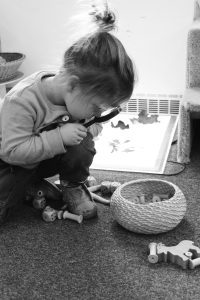
Establishing Routine and Independence
Starting preschool introduces children to routines, which help create predictability and stability. Settling in gives children time to adjust to a new daily schedule—learning when it's time for circle time, snack time, or free play. This predictability helps reduce anxiety and gives children a sense of control over their day.
Additionally, settling into preschool encourages independence. During this period, children are gently guided to take on new responsibilities, like packing their bags, using the bathroom on their own, or tidying up after activities. With time, these tasks become second nature, boosting their confidence and sense of competence.
Next week we will look at positive attitude toward learning and parent-teacher relationships.
-Deborah, Adel Inspirations
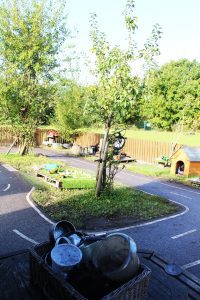
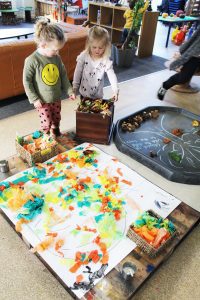
Early Years: Taking care of the future
The first 5 years are the most important for our brains and developments, starting from inside the womb. The brain almost doubles in volume in the first year and grows faster than any other time in our lives. By the time children start school, their brain has already had vast amounts of growth, laying down the blueprint to the future.
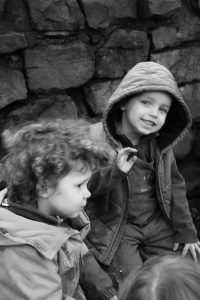
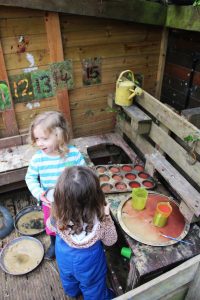
We already know the early years are crucial but this highlights just how important it is. We have a big role to play in this, and at Inspirations we are proud to be a place that helps little ones flourish.
The emotional health and physical wellbeing, social skills, cognitive and linguistic capacities that develop in these critical days form the foundations for our children's success in school and in later life. These best develop when a baby has at least one stable and committed relationship with an adult.
But healthy development relies on us doing the following things-
- Connecting
- Talking
- Playing
- A healthy home
- Community
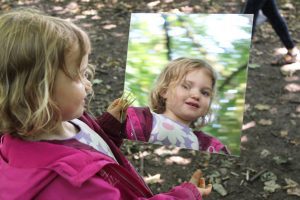
Copy cat games build imagination and empathy, naming games build vocabulary and attention, and games like peek a boo build memory and trust.
In our baby and toddler rooms our early years educators take the time to be with the children for both group activities and one to one. Activities such as fruit tasting, singing and signing, painting, reading, or making pine cone soup in the mud kitchen. Together our educators, managers, cooks, and dogs are the community that are here for these meaningful interactions, support and love.
Pre-school is separated into Yurt/Outdoor Classroom, Forest School and Art studio, where smaller groups help accommodate deeper learning and connections to their peers, grown ups and environment.
Whilst little moments of play and interaction may seem like the trivial light-hearted moments in life, they are in actual fact providing your child with the most important life skills.
By doing these things often, we are giving them the confidence to make friends, try new things and explore the world. Children are hardwired to seek out meaningful connections, it's our job to give them.
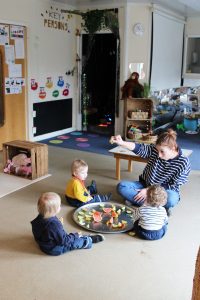
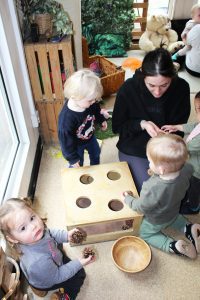
Inspirations is so much more than child-care, its a community; a hub of meaningful interactions to develop life skills, and a love of connecting to people, art and the outside world.
So remember, the next time you sit down with your little one to sing and do the actions of their favourite song, you might just be changing their world.
-Nathalie
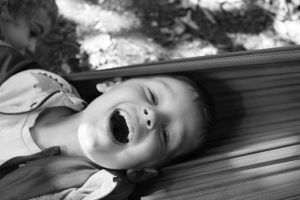
This blog was inspired by the following Ted talk https://www.instagram.com/reel/C9rK3irKtYM/?igsh=MXFiYjJ3NTZibmUyZw==
Funding
September 2024 brings the next phase of the government funded hours expansion. From September 2024, the 15 hours funding will be extended to, those eligible, from nine months plus. It’s important to know that 15 hours is funded for 38 weeks of the year (term time only and one non funded week in Autumn). At Inspirations, we can stretch that to make it 11 hours a week. We can do that from each September term.
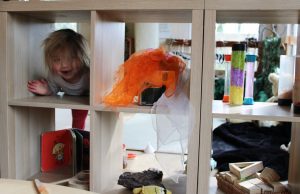
One thing we need to be aware of, is that all funding becomes valid the term after they turn 9 months, 2 years or 3 years. The terms are September (Autumn), January (Spring) and April (Summer). This means if your child turns 3 in May, they will not be eligible for the 3-year
funding until September.
You can check if you are eligible and set up a childcare account here - https://www.gov.uk/check-eligible-free-childcare-if-youre-working
Here you need to also revalidate your code every 3 months; it’s a good idea to make a note of the date as more than likely, the reminder will go in to junk. If you don’t revalidate it, we as providers will not be able to claim the funding on your behalf.
On here, you can also make use of the tax-free childcare scheme. It is useful because when you put money in there, you get a government top up. Then you can pay Inspirations through that. You get an account code that you will just need to send us, so we know who to allocate
it to when it’s been paid in. Next September 2025, is the last phase of the funding expansion; where we will see all
eligible families receive 30 hours per week childcare. Again, this is over 38 weeks but we can stretch that too.
Please see the link below for our video to help you fill out the funding forms-
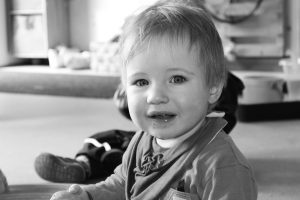
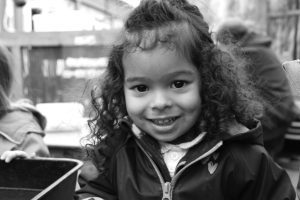
-Kayleigh
Empowering the Child's Voice Through Art
This July, my self (Nathalie from the Art Studio) and Tara took part in an early years conference 'Using the Arts for the Children's Wellbeing and Communication: A holistic Approach'. It was delivered as part of a funded Arts Council Partnership called 'Tuneful Chatter,' and was a wonderful reminder of why we do what we do at Inspirations Nurseries in terms of creativity and the 100 languages of learning.
At the beginning of the conference we were asked to write down 'What do we want for this child' in any given learning opportunity. The answer I wrote down was 'I hope the child feels confidence to experiment with materials and to learn from mistakes so they can build confidence. I hope the child discovers something they love doing'.
So how do we ensure we are doing this at inspirations? This is why the child led approach is so important. In the Art Studio, our purpose build creative space for pre-schoolers, a pirate interest became a common theme for many of the children. It came pretty much from nowhere, but it was our job to follow it, the children were heard, and the room reflected that.
Over the weeks we have explored this topic in many expressive arts, but after creating a collaborative treasure map I stepped back and observed. It became apparent the interest was in the process of creating paint to represent the sea. The real interest here was not at all the end result of the treasure map, but it was the process. So, inspired by the sea, we have spent a whole week now dedicated to mixing shades of blue, and it has kept their attention for such a huge amount of time.
Art is a form of expression
Art is a communication tool; a tool for voice. Our job is to empower that child's voice. When the children in the Art Studio sit with the palettes and paints experimenting with colour, in that moment that is their language of learning; they are being heard; they are getting exactly what they want from the moment. When this happens, we have done our job.
Some of the children used this session to mix paint to make 'blueberry crumble', and pour the paint into biscuit trays, and that is ok. As the educator we do not prescribe outcomes, this is not paint by numbers.
Children have 100 languages of learning and it is our job to match that, not restrict it. When a child is full of potential there is hope and they know that you believe in them.
In order to create these enriching environments we also need to think about the community we are building in our classrooms. Our children pick up on feelings, part of our job in this type of setting is to make the place full of wonderful conversations. Wonderful conversations between staff, animals, each other and to do this we have to understand our selves and be compassionate to our selves and others. Ultimately, Inspirations is a community, filled with deep learning and joy from all.
So what do we want for our children?
'Our task regarding creativity is to help children to climb their own mountains. No one can do more'- Malaguzzi 1988
Thank you to the Doncaster Council and Tuneful Chatter for inspiring conference, and reminding us of the importance of all of the expressive arts in the early years.
-Nathalie
Inspirations Summer Party
We are 20 years old
On Saturday 13th is was our Summer Party, a chance to celebrate our School Leavers and our 20th Birthday all rolled into one. The dull skies did not reflect the mood, as the amazing Spike Bonzo brought magic and laughter to our nursery, Capela Do Samba brought in some carnival outfits and rhythmic drum beats and we had food, face paint and a fire engine, as well as our school leavers song and ceremony.
Thank you all for coming to help us celebrate. Here's a few photos from the day.
- Nathalie
Plastic Free July
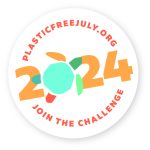
Do you ever ask yourself what you could be doing to reduce the use of plastic and ultimately contribute to a cleaner and greener future? Taking small steps in your everyday life, such as swapping plastic bags, straws, bottles and packaging are small ways you can help. By looking for reusable alternatives, shopping in bulk, and supporting businesses that offer plastic-free options this will all help to reduce the amount of plastic waste that ends up in landfills and oceans and ultimately protect the environment we live in and the wildlife suffering from this harmful pollution.
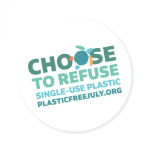
Plastic free July is a global movement that encourages individuals to reduce their plastic consumption. The initiative aims to raise awareness about the environment impact of plastic pollution and inspire people to make sustainable choices in their daily lives. Whether you are a seasoned environmentalist or new to the concept of sustainability, Plastic Free July offers an opportunity to make a positive impact and be part of a global community.
At Inspirations we do everything we can to contribute and educate the children for a more sustainable and eco-friendly way of living. Some of the changes we have made, and continue to make are:
- Recycling – we have recycling bins throughout the nursery to make sure items such
as paper, cardboard, aluminium and selective plastics, are disposed of appropriately
and safely. - Composting – we have 3 large composting bins that staff, children and parents
contribute to daily. We have caddies for families to take home and transport their
waste to Nursery. - Materials/resources – we try use materials for everyday activities that are safe to
recycle. We make our own Glitter as this is specifically damaging to the environment,
and sticking materials that are more sustainable. - Litter picking – We take out small groups to the local area and we encourage
families to participate in littler picking in their own time, lending pickers should they
need to use them.
These are just some of the ways in which we help, and we are constantly reflecting and learning of new ways to help the world we live in. When recycling plastic, reading the labels on the reverse of packaging is vital as to avoid the disposal of non recyclable items. Please visit What to put in your green bin
https://www.leeds.gov.uk/residents/bins-and-recycling/your-bins/green-recycling-bin
https://www.plasticfreejuly.org/take-the-challenge/ has lots of resources and ways to get involved. Take part in the challenge
this month and take steps towards a plastic free lifestyle.

-Ashleigh
Compost Collective
Inspiring Green Habits
At Inspirations Nurseries, we believe in nurturing not only the minds of our little ones but also instilling in them a deep sense of environmental responsibility. Thanks to Foodwise Leeds our latest initiative; 'Compost Collective' is underway and aims to educate children about the importance of composting and empower them to make a positive impact on the planet, starting from an early age.
Find out more about the amazing Food Wise-

In this blog post, we will delve into the significance of teaching composting to children and how educators play a vital role in fostering a sustainable mindset.
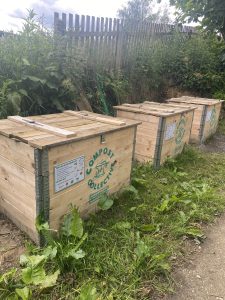
The Importance of Composting:
Composting is a natural process that transforms organic waste into nutrient-rich soil. By composting, we divert organic waste from landfills, reduce greenhouse gas emissions, and enrich the soil for future plant growth. Educating children about composting not only teaches them about the cycle of life but also installs in them an understanding of the interconnectedness of all living things. It helps children develop a sense of responsibility towards the environment and empowers them to take action to protect it.
Starting Early:
Children have a remarkable capacity for learning and absorbing information, making early childhood an ideal time to introduce them to the concept of composting. By exposing children to composting at a young age, we lay the foundation for a lifetime of environmentally conscious choices. Starting early also allows children to witness the entire composting process, from collecting food scraps to observing the decomposition and transformation into nutrient-rich soil. This hands-on experience fosters a deep connection with nature and enables children to appreciate the value of waste reduction and resource conservation.
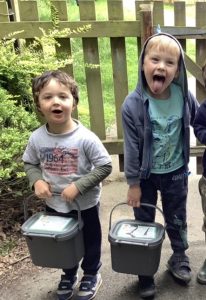
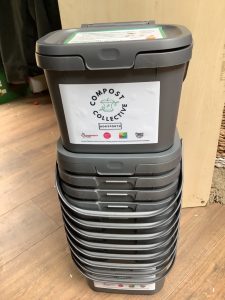
Catalysts for Change: Educators
As educators, we have the privilege and responsibility to shape young minds and inspire them to become environmentally conscious individuals. By incorporating composting into our curriculum, we can create an immersive learning experience that goes beyond the classroom walls. Through interactive activities, storytelling, and gardening projects, we can engage children in meaningful discussions about the importance of composting and its positive impact on the environment. By involving children in the entire composting process, we empower them to become active participants in sustainable practices.
Benefits of Composting Education:
Teaching children about composting provides numerous benefits. Firstly, it instills in them a sense of environmental stewardship, nurturing a generation that cares deeply about the planet's well-being. Secondly, composting education encourages critical thinking and problem-solving skills as children learn about decomposition, nutrient cycles, and the science behind composting. It also promotes teamwork and cooperation as children work together to collect and manage compost materials. Additionally, composting education fosters a sense of responsibility and self-sufficiency as children take ownership of the composting process.
Inspiring a love for nature and sustainable practices in young children is a powerful way to create a greener and brighter future. By introducing composting education in early childhood, we equip children with the knowledge and skills to make a positive impact on the environment. At Inspirations Nurseries, our Composting Project aims to cultivate a sense of environmental responsibility, foster a deep connection with nature, and empower children to become agents of change. Together, let's sow the seeds of sustainability and nurture a generation that cherishes and protects our beautiful planet.
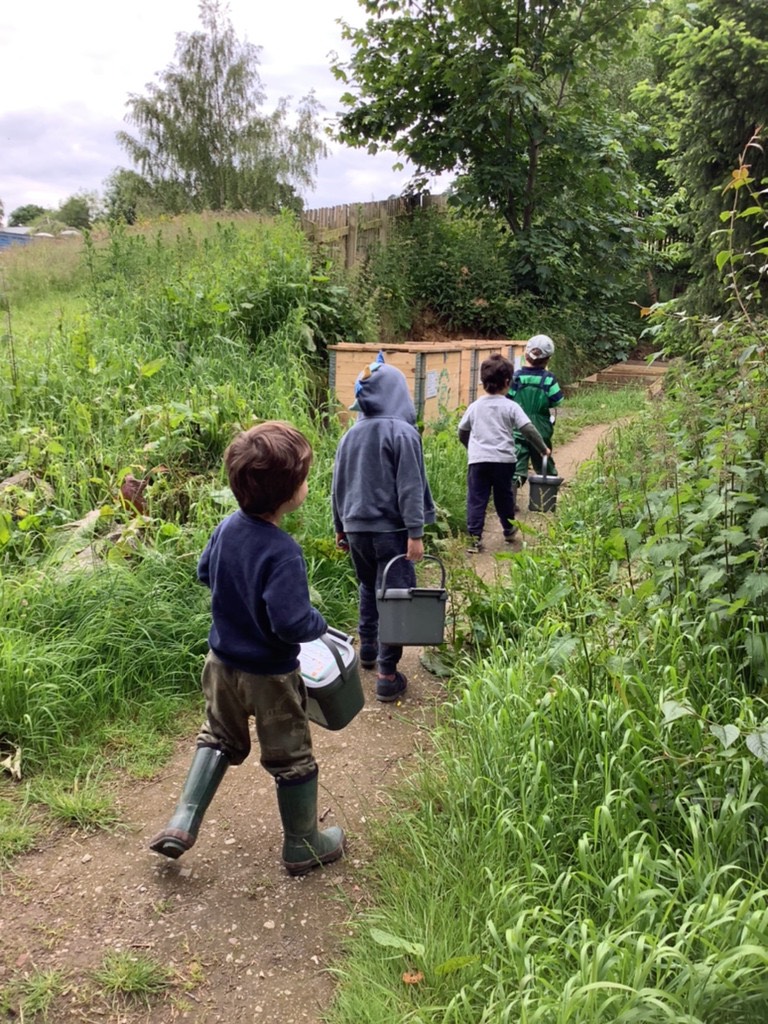
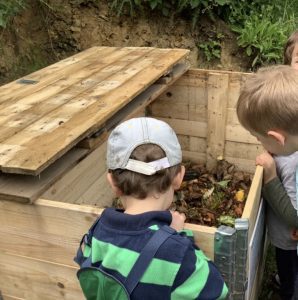

5 Ways To Encourage Creativity at Home
Encouraging creativity is really important to us at Inspirations, and this is evident in our Baby Rooms right up to when they leave us in Pre-school. It's also a great way to keep them busy and stimulate their curiosity and development at home, and it doesn't always have cost money or run the risk of staining carpets.
So here's a quick run down of 5 easy ways to encourage creativity at home-
Encourage Role Play
Toddlers love to imitate and explore other people. Encouraging role play can help your child develop their social skills, language, and creativity. Why not bring to life the characters from their favourite book? Provide props and dress-up clothes, and let your child take on different roles. You could even set up a pretend play area on theme. Remember, children have huge imaginations, you can simply provide tea towels, woolly hats, towels or just simple a change in voices.
Provide Open-Ended Materials
Have you been to SCRAP in Farsley? Scrap is an emporium of amazing resources diverted from landfill for art, play and education. Children love exploring and experimenting with different materials. Providing them with open-ended materials such as play dough, boxes, crayons, material and tubes can allow them to express their creativity and imagination in their own unique way. Give them a piece of packaging, ask them what they could do with it, or lay down textures material and walk over it with bare feet. Maybe you could use an old shelf as a car ramp?
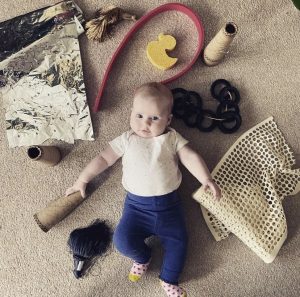
Engage in Artistic Activities Together
Set aside some time each week to engage in a creative activity together, such as painting, drawing, or making a collage. Not only will this help foster your child’s creativity, but it will also create special memories for both of you. Simply save some cardboard from your next delivery and let that be your canvas. Take it in the garden if you're worried about mess.
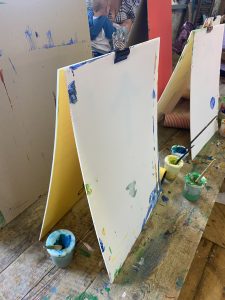

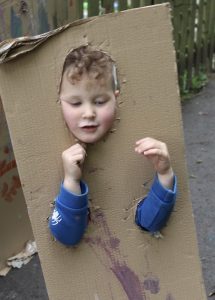
Follow Their Lead
Young children are naturally curious and have their own unique interests. Follow their lead and provide opportunities for them to explore their passions. For example, if your child shows an interest in birds, buy some binoculars, go to the library and find some wildlife books. Book a trip to a bird sanctuary, make some bird food, print some pictures to take a closer look. If they're interested in flowers why not go for a nature walk and bring back some natural resources for them to explore when home, flowers for the mud kitchen, pinecones to make pinecone pies.
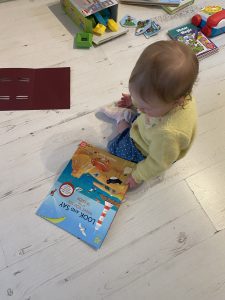
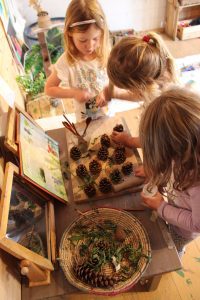
Create a Safe Space for Movement
Messy play, movement and den building is a great way for toddlers to engage with their senses and explore their world. Use an old table cloth or shower curtain as a stage to create a show with singing or movement. Or why not provide some bed sheets and sofa cushions to make a den.
So there you have it 5 simple ways to encourage creativity in your home. Make use of old boxes and packaging, there are so many house hold objects that can be used in many different ways. Don't forget to ask open ended questions along the way, and let us know if you try any of these at home.
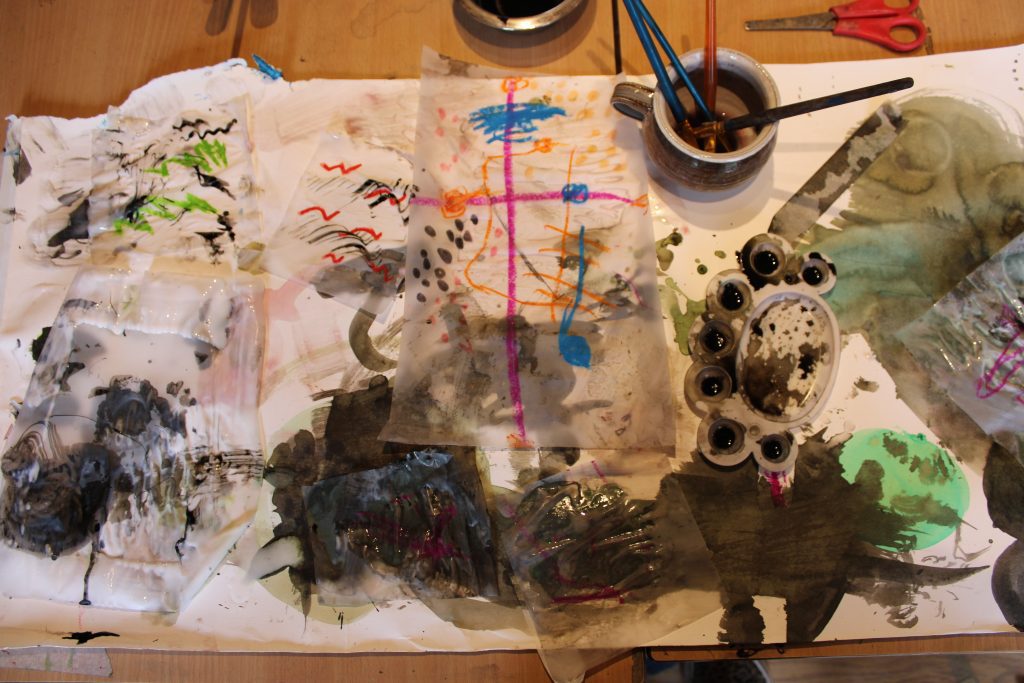
-Nathalie
